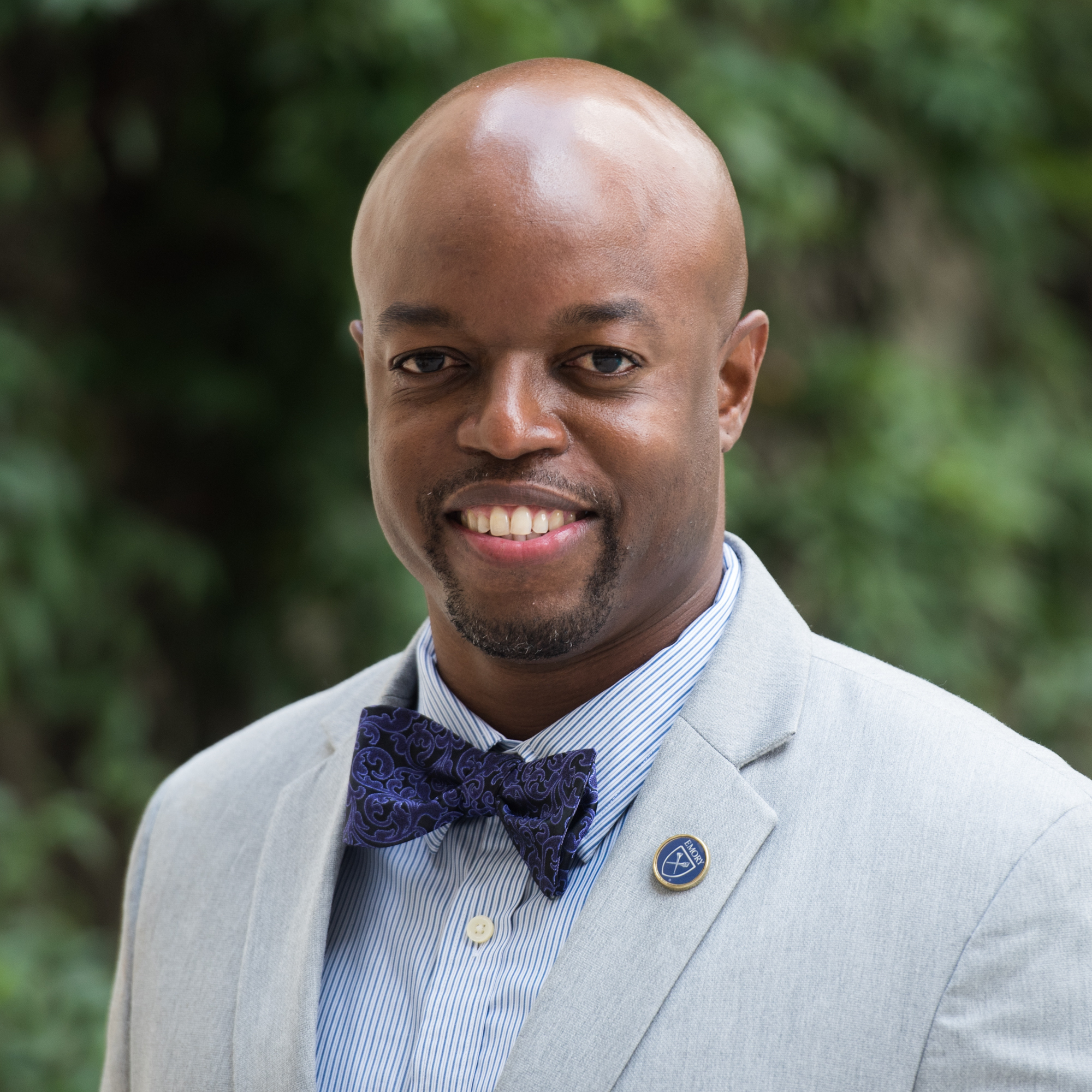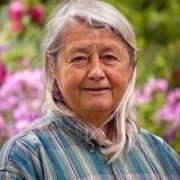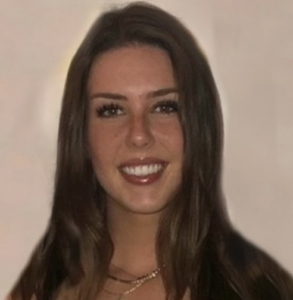CISE Graduate Fellowships
Fellowship Applications: The 2025 application period for the NSF CSGrad4US Fellowship is now open. Applications close at 11:59 PM ET on May 31, 2025.
The NSF CSGrad4US Mentoring Program supports and mentors recipients of the NSF CSGrad4US Graduate Fellowships returning to graduate school for a PhD in computing.
The objective of the Computer and Information Science and Engineering (CISE) Graduate Fellowships (NSF CSGrad4US) is to increase the number of diverse, domestic graduate students pursuing research and innovation careers in the CISE fields: computer science, computer engineering, or information science.
The goals of the NSF CSGrad4US Mentoring Program are:
- To guide returning students through the application process towards a successful CS PhD admission and school selection
- To mentor them through the transition to PhD graduate study in the first year towards high retention.
Specific topics include the admissions process, preparation of all components of a strong graduate application, differences between graduate programs at different institutions, how to compare programs with respect to the Fellow’s goals and background, and general guidelines on making a selection among admission acceptances.
The NSF CSGrad4US Mentoring Program will provide not only general graduate application advice and guidance, but also provide a missing larger context and network to students returning from the workforce. These goals are achieved through group mentoring sessions followed by individual coaching during the application and decision-making process and the first year in graduate school.
This material is based upon work supported by the National Science Foundation under Grant Numbers (2123180, 2231962, and 2313998). Any opinions, findings, conclusions, or recommendations expressed in this material are those of the author(s) and do not necessarily reflect the views of the National Science Foundation.
Read the NSF CSGrad4US 2024 Annual Evaluation Report here: 2024.07.02 Evaluation Report Year 1 CRA CSGrad4US
Available Formats: PDF
Document Type: Program Announcements & Information.
Document Number: nsf23136
Public Comment:
Document History: Posted: August 16, 2023.
Meet the NSF CSGrad4US Fellowship Recipients!
The Computing Research Association, in partnership with the National Science Foundation, is proud to announce the recipients of the NSF Computer and Information Science and Engineering Graduate Fellowship Program (NSF CSGrad4US). NSF CSGrad4US aims to increase the number of diverse, domestic graduate students pursuing research and innovation careers in computer and information science and engineering fields. Each year, a diverse cohort of NSF CSGrad4US fellows is selected based on their demonstrated interest and potential in pursuing a doctorate in a CISE field. There are currently 116 NSF CSGrad4US Fellows enrolled in 57 institutions across the United States. Below, our Fellows have provided some information about themselves, their interests, and their research goals.
Max Aalto, Massachusetts Institute of Technology
Electrical Engineering and Computer Science — Materials Design
Max is developing computational methods for crystal and electronic structures prediction in conjunction with high-throughput devices for materials synthesis and characterization, with the objective of building the infrastructure for novel paradigms in the design and discovery of new material systems.
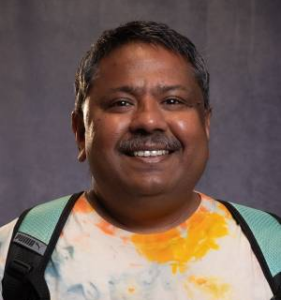 Giri Anantharaman, Carnegie Mellon University
Giri Anantharaman, Carnegie Mellon University
Computer Science — Robotics
I am first year PhD student at Robotics Institute, Carnegie Mellon University advised by Guanya Shi and Max Simchowitz. My research interests revolve around decision making in sequential, interactive and dynamic settings, grounded in a principled theoretical and algorithmic framework. I hope that such a framework can help reason about trade-offs and provide realistic guarantees, when applying learning techniques along side classical control ideas in robotics. Before starting PhD, I worked in the industry for about three decades as a software engineer across mobile, data and AI domains.
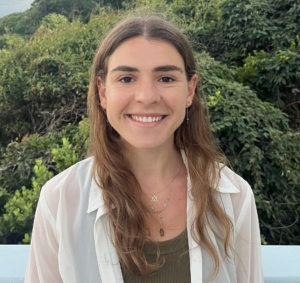
Samantha Archer, Stanford University
Electrical Engineering — Computer Architecture
Samantha is currently a PhD student in the Electrical Engineering Department at Stanford University. She is broadly interested in computer architecture, computer systems, and formal verification. Before beginning her graduate education, she worked as an ASIC physical design engineer at NVIDIA. She graduated from Duke University in May 2020, with a BSE in Electrical & Computer Engineering and BA in Mathematics. In addition to academic research, she enjoys running, reading, cooking, teaching, and being outdoors.
Marcus Arnett, Kent State University
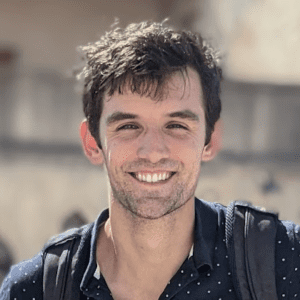 David Atkinson, Northeastern University
David Atkinson, Northeastern University
Computer Science — Interpreting Deep Learning Models
I am a first-year PhD student at Northeastern University, advised by David Bau and Byron Wallace. My research interests revolve around interpreting and controlling large language models. Before starting the PhD, I worked as a software engineer at an agricultural startup, and then as a researcher at Epoch, investigating when and how we should expect advanced AI capabilities to arrive. I majored in Math and Computer Science at the University of Colorado, Boulder, where I did NLP research advised by Chenhao Tan.
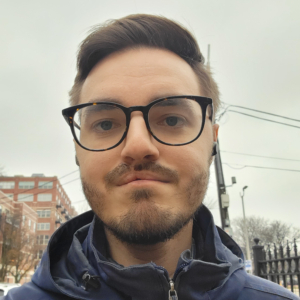 Alexander Bandukwala, University of Michigan
Alexander Bandukwala, University of Michigan
Computer Science and Engineering — Programming Languages
I’m a researcher in the Future of Programming Lab at the University of Michigan, where my work focuses on programming languages, specifically Hazel, a live functional programming language. I’m interested in utilizing the intersection of Programming Language Theory and Human-Computer Interaction to make the power of computing better for everyone. My long-term vision is to extend live programming into creating malleable software by integrating programming language structures into end-user interfaces. Before my research career, I worked as a professional software engineer for over a decade.
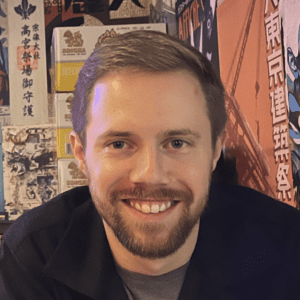 Oliver Bentham, University of Utah
Oliver Bentham, University of Utah
Kahlert School of Computing — Natural Language Processing
I spend my time working on problems at the intersection of natural language processing and machine learning. I’m particularly interested in model architectures, their structural learning biases, and alternatives that impart the ideal biases for effectively modeling language. In my free time, I enjoy playing soccer with friends and hiking.
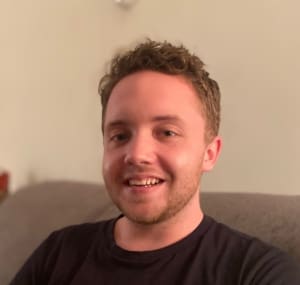 Alexander Bock, Rice University
Alexander Bock, Rice University
Department of Computer Science — Computational Biology
Alex is a first-year Ph.D. student at Rice University in Dr. Lydia Kavraki’s group. With backgrounds in biology and natural language processing, Alex is interested in synthesizing protein sequence and structure data to infer protein function, biophysical properties, and evolutionary relationships. During his undergraduate study, he gained experience with the research process and with computational biology. After graduating from Tufts University in 2019 with a degree in computer science and biology, he spent four years as an engineer in the R&D sector working on problems including multimodal learning, topic modeling, and computational antibody design. His work with impactful advisors and driven researchers in a variety of fields inspired him to return to the academic world and pursue a career in formal research. Beyond thinking about proteins, Alex enjoys biking and playing blues keyboard.
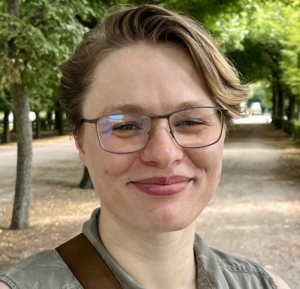 Sarah Boelter, University of Minnesota
Sarah Boelter, University of Minnesota
Computer Science and Engineering — AI and Robotics
Sarah graduated with her undergraduate degree in Computer Science from University of Alaska Anchorage. She worked for four years in the aviation industry as a software engineer before beginning her doctorate in Computer Science at the University of Minnesota in Minneapolis. Her research interests include the intersection of artificial intelligence and robotics in aviation and space, and is currently working on robotic autonomy in high-risk planetary environments. Sarah is on the University of Minnesota Nordic Ski Team, enjoys spending time outdoors, and volunteering with local animal rescues. Sarah is supported in her studies by her spouse, Patrick and her cat, Squeak.
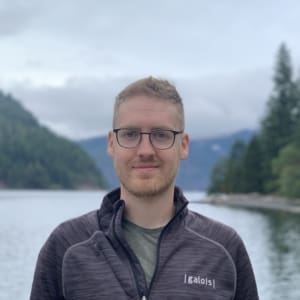 Eric Bond, University of Michigan
Eric Bond, University of Michigan
Computer Science and Engineering — Programming Languages (Type Theory)
I am a programming language researcher interested in mathematical models of language semantics. Before joining University of Michigan, I worked as an industry researcher in formal verification.
Toby Baratta, University of California Irvine
Eli Bronstein, University of California Berkeley
Forrest Bucklew, Mississippi State University
Computer Science — Human Computer Interaction
Forrest has spent her life in beautiful middle Tennessee, and is proud to be giving back to her community by serving as a member of law enforcement there while pursuing her degree online. After completing her first undergraduate degree in Psychology from Vanderbilt University, Forrest discovered Computer Science as an outlet for her passion for problem solving. She then completed a Masters in Cybersecurity from Johns Hopkins University, before taking a break to focus on her new career in Digital Forensics and her family. She is now ready to dive back into academia once again, and is pursuing her PhD in Computer Science from Mississippi State University. When not busy with work or school, she spends her time with her two beautiful children and her incredibly supportive husband.
Ilan Buzzetti, UT Dallas
Computer Science — Formal Methods
I am excited to be back at my alma mater to pursue a PhD. When I first graduated I decided to enter industry and made peace with the idea that I was done with academia for this lifetime, though I had enjoyed it. I’m grateful that the CSGrad4US fellowship has empowered me to return for a doctoral degree with peace of mind over my finances. I love computer science, but what I’m truly passionate about is kindness. My mission in this lifetime is practicing kindness to myself and kindness to others. This awareness was sorely missing in my life during my undergrad experience and I hope that the demonstrated benefits of the practice make it contagious to my stressed and burdened peers.
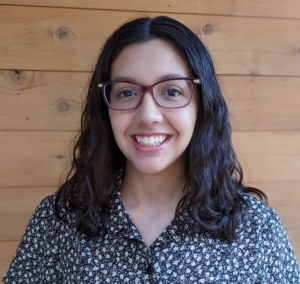 Alyssa Cantu, Rice University
Alyssa Cantu, Rice University
Computer Science — Computational Biology
Alyssa is a proud native of the Rio Grande Valley region of South Texas, a region located on the border of Texas and Mexico. She graduated from Brown University with an A.B. in Computational Biology in 2018. Prior to beginning her Ph.D. program, she worked as a Computational Biologist at the Texas Advanced Computing Center in Austin, Texas. She is currently a third-year Ph.D. student in Computer Science at Rice University. She is generously funded by the NSF CSGrad4US program as one of its inaugural fellows. Her research interests broadly encompass Computational Biology, and she is currently studying alternative splicing differences across Alzheimer’s Disease-associated cell types under the supervision of Dr. Vicky Yao.
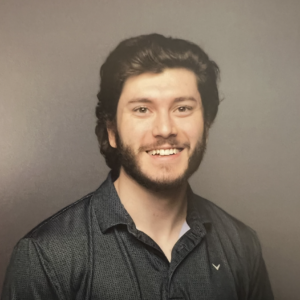 Miguel Angel Chapa, Arizona State University
Miguel Angel Chapa, Arizona State University
Computer Engineering (Electrical Engineering) — Nano-scale electronics, sensors, and devices, computer engineering
My name is Miguel Angel Chapa, I am a 2022 CSGRAD4US Fellow currently pursuing my Ph.D. in Computer Engineering with a focus on Electrical Engineering at Arizona State University. I am looking forward on building and creating novel nano-scale electronics, sensors, and devices to enable the next revolution in the CISE discipline and further improve STEM and Medicine.
Izzy Chaiken, University of Washington
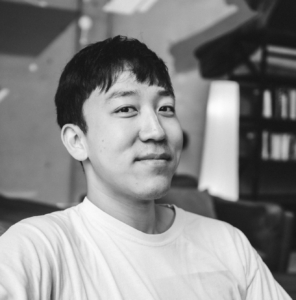 Peter Chang, MIT
Peter Chang, MIT
EECS — Deep Learning, AI for Science
Peter G. Chang is a first-year Ph.D. student in EECS, advised by Prof. Sendhil Mullainathan. He received his A.B. in Physics and Mathematics and S.M. in Computer Science, both from Harvard University. He is primarily interested in augmenting scientists with tools to understand the world.
Miguel Chapa, Arizona State University
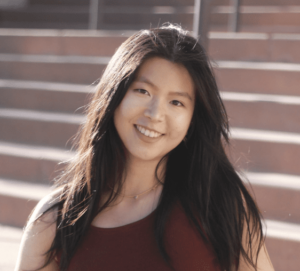
Jiahui Chen, University of Texas Austin
Electrical and Computer Engineering — AI
Jiahui Chen is a first year PhD student at the University of Texas Austin, who is interested in the controllability of generative AI and uncertainty quantification in machine learning. Before her PhD she spent 3 years as a software engineer at Facebook/Meta working on various AI projects including: the text-to-image models that power AI-generated stickers in Messenger and WhatsApp, a PyTorch library for uncertainty estimation, and models that detect harmful content on Instagram. During her PhD, Jiahui hopes to work towards making generative models more controllable and is broadly interested in how to make AI more robust and responsible.
Andy Chung, University of Michigan
CSE — Machine Learning
Andy Chung is a PhD student at the University of Michigan. His research focuses on leveraging large language models to build embodied agents. Previously, he worked as a software engineer at Amazon. Andy received his bachelor’s degree in Computer Science from Georgia Tech.
Geofrrey Churchill, SUNY at Stony Brook
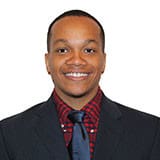 Allee Clark, Howard University
Allee Clark, Howard University
Electrical Engineering and Computer Science — Affective Computing
I am a Computer scientist by undergraduate education, and returned to Howard University to complete the graduate program. Currently researching large language models for decision making in an Affective Computing lab. I spent my gap years in academia as an engineer on software infrastructure teams driving production readiness for life critical systems. My career interests include cars, robots and software.
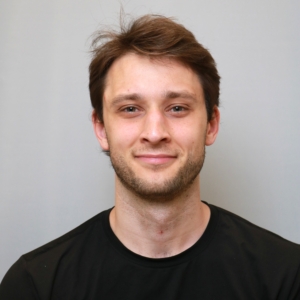 Stephen Crawford, Brown University
Stephen Crawford, Brown University
Computer Science — Robotics
I work in the Brown ACT Lab where I study the coordination and cooperation of robot teams. My research focuses on supplementing model predictive control with machine learning and creating new representations of complex systems.
Zach Cutler, University of Utah
Computer Science — Data Visualization
I’m a first year PhD student at the University of Utah School of Computing working with Alexander Lex. My current research is focused on making user studies easier to design, run, and analyze. I’ve previously worked mostly on provenance in visualization systems, and helped develop both the Trrack and Trrack-Vis libraries. Other research interests of mine include storytelling, and learning how to better communicate with non experts with visualization. Outside of work I play a lot of basketball, tennis, and chess.
Jeremy Davis, University of California Santa Cruz
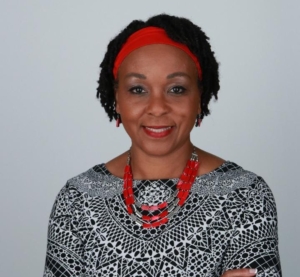 Tonya Davis, Purdue University
Tonya Davis, Purdue University
Computer Information Technology — Computer Science Education
Tonya earned a BS in Computer Science Engineering and a Master in Business Administration from Washington University in St. Louis. She started her career in industry as a Marketing Representative for IBM after undergrad and as a Senior Product Manager for Texas Instruments after graduate school before segueing into education. She taught as an adjunct instructor at Wharton County Junior College and The University of Houston Downton before teaching secondary math and computer science. She is passionate about broadening participation in computer science and STEM and helping to eliminate barriers to access and engagement for students traditionally left out of tech careers. Her research interests are in computer science education teaching and learning. She is currently a mentor in the MENTORS in CS (Matching Experienced and Novice Teachers for Ongoing Rigorous Support in Computer Science) RPP with the Computer Science Teachers Association supported by the National Science Foundation.
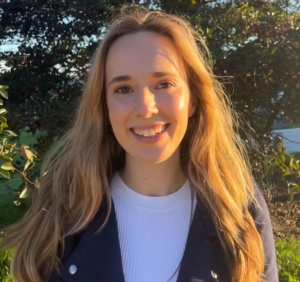 Melissa Dutz, Toyota Technological Institute at Chicago
Melissa Dutz, Toyota Technological Institute at Chicago
Computer Science — Algorithms
Melissa is a Computer Science PhD student advised by Avrim Blum at TTIC. She’s broadly interested in algorithms, including algorithmic game theory, online and approximation algorithms. She’s also excited about exploring learning theory and computational social choice. Prior to joining TTIC, Melissa worked at Meta (then Facebook) for several years as a software engineer on the Differentiable Programming team. Her undergraduate degree is in Computer Science from Pomona College.
 Yara El-Tawil, University of Michigan
Yara El-Tawil, University of Michigan
CSE — Speech, AI, Health, and HCI
Yara is currently a PhD student in the Department of Computer Science and Engineering at the University of Michigan. Her research interests center around AI for healthcare, including using speech and activity data to track mood and monitor mental health symptoms and human-centered design to ensure these systems benefit the patients who use them. Before beginning her graduate education, she worked as a software engineer at Microsoft. She graduated from the University of Michigan in 2020 with a dual BS in Computer Science and Biopsychology, Cognition, and Neuroscience. In her spare time, she enjoys reading, crochet, pottery, being outdoors, and traveling.
![]() Eduardo Escoto, University of California, San Diego
Eduardo Escoto, University of California, San Diego
Computer Science — Machine Learning, AI
Eduardo is a first year Ph.D. student advised by Julian McAuley. He is currently involved in research focused on improving Generative Music and Music recommendations through better tokenization and semantic music representations. Previously, Eduardo was a Senior Data Scientist at Noom focused on growth where he worked on A/B testing, LLM Agents, and personalization & pricing. Before that, he was an AI Data Scientist at Afiniti focused on modeling interactions between agents and customers.
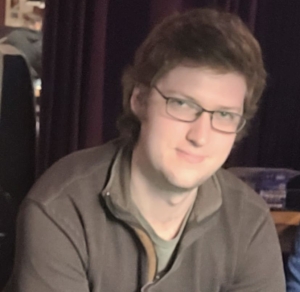
Jordan Esiason, North Carolina State University
Computer Science — Machine Learning/AI
Jordan Esiason is a graduate student at North Carolina State University’s Department of Computer Science. He received his Bachelor’s degrees in Statistics and Music Composition at the University of Massachusetts Amherst in 2019. He worked in the computer science education research field for SageFox Consulting Group after graduation, becoming involved in a number of grant-funded projects that aimed to increase the accessibility and quality of computer science education in the United States. His research interests currently include applying natural language processing and artificial intelligence to computer science education, such as in the creation of intelligent tutoring agents.
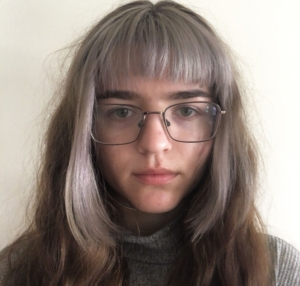 Ekaterina Fedorova, University of Pennsylvania
Ekaterina Fedorova, University of Pennsylvania
Computer and Information Science — Algorithmic Game Theory, Incentive-Aware ML, Strategic Classification
Ekaterina Fedorova is a PhD student at UPenn Computer Science in the intersection of CS theory, economics, and human-computer interaction. She is broadly interested in users’ interactions with algorithms, social recommendation systems as mechanism design, and strategic classification. Ekaterina is currently working on projects involving theoretically modeling strategic/non-myopic agents in recommender systems and altruistic agents in strategic classification settings. She is advised by Dr. Danaë Metaxa (UPenn) and works closely with Dr. Chara Podimata (MIT). Prior to being a CS PhD student, Ekaterina received a B.A. with majors in statistics and economics from UC Berkeley and worked as a researcher at UChicago.
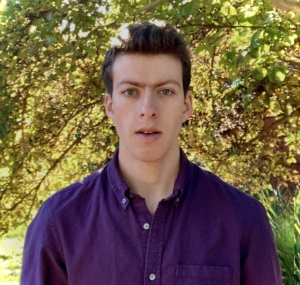 Evan Frenklak, University of Texas at Austin
Evan Frenklak, University of Texas at Austin
Electrical and Computer Engineering — Computational/Medical Imaging
Evan is a PhD student and CSGrad4US fellow at UT Austin, working with Professor Jon Tamir in the Computational Sensing and Imaging Lab. Previously Evan worked in industry on radar R+D, including field projects with NASA to develop low-cost geophysical imaging platforms. His research interests include optimization models and signal reconstruction for accelerated MRI. Ongoing work examines the impact of sampling patterns used in public MRI datasets on downstream analysis and algorithm training. Evan hopes to bridge ideas from applied math, computer science, and engineering to improve clinical outcomes and make medical imaging more accessible.
Samsara Foubert, Carnegie Mellon University
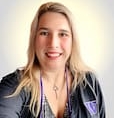 Kate Glazko, University of Washington
Kate Glazko, University of Washington
Computer Science — HCI/Accessibility
Kate is a first-year PhD student at UW advised by Dr. Jennifer Mankoff. Kate’s current research centers around the opportunities that generative AI could present for making areas such as design and fabrication more accessible. She is likewise interested in solutions to the ableist and inaccessible outputs that GAI models can sometimes produce. Kate’s research interests also include more approachable, engaging ways of communicating information such as health feedback. Kate additionally collaborates with Dr. Elizabeth Murnane (Dartmouth) Dr. James Landay (Stanford), Dr. Paula Moya (Stanford) on the WhoIsZuki and Perfecto projects which study novel methods of encouraging exercise in at-risk individuals. Previously, Kate did her MS and BS in CS at the University of Southern California where she worked on projects relating to human-robot interaction and neurodiverse learners. She additionally spent 6+ years in the software industry working in a range of roles including engineering and product management.
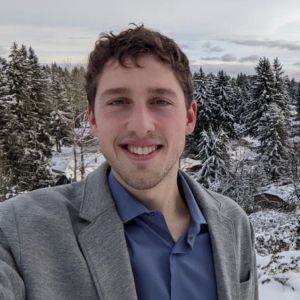 Steven Golob, University of Washington Tacoma
Steven Golob, University of Washington Tacoma
School of Engineering and Technology — Privacy-preserving machine learning, fair AI, differential privacy
Steven is a lifelong student of mathematics and computer science. Having spent time at the Boeing Company as a software engineer, working on the flight simulator, he is now in the PhD program at the University of Washington Tacoma. There, he was the lead of a team that won 1st place in the SNAKE challenge on privacy attacks against synthetic data. He is also the recipient of the SET Outstanding Graduate Research Award (2023) and the Andrew and Julie Fry Innovation Award (2023) for his contributions to the solution with which his research team won 2nd place in the NSF-hosted U.S.-U.K. PETs Prize Challenge 2023. His research interest is in privacy-preserving machine learning (PPML) and fair AI, critical fields that address the widespread concerns of handling personal data securely and equitably. Steven sees research in PPML as a way to contribute meaningfully toward technologies that have huge impacts in people’s lives. At the same time, working in academia will allow him to fuel his passion for helping and mentoring his fellow computer science students.
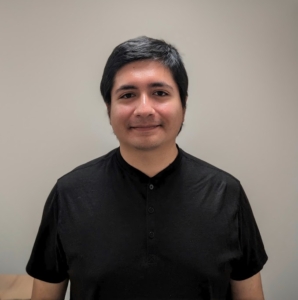 Alfredo Gomez, Carnegie Mellon University
Alfredo Gomez, Carnegie Mellon University
Language Technologies Institute — Natural Language Processing
Alfredo is a first-year PhD student in the Language Technologies Institute at Carnegie Mellon University. His research interest is in assessing the trustworthiness of Natural Language Processing systems. Previously, Alfredo worked as a software engineer at the California Institute of Technology where he aided in bringing software engineering and machine learning practices into the domain of nanotechnology. Alfredo holds a Bachelor of Science in Computer Science and Mathematics from Harvey Mudd College.
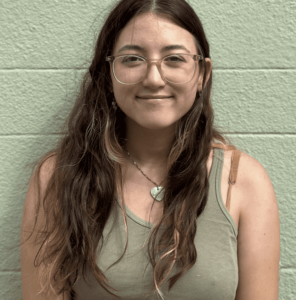 Erica Goodwin, University of Chicago
Erica Goodwin, University of Chicago
Computer Science — Computer Science Education
Erica is a first-year PhD student researching computer science education. Previously, Erica worked as a software engineer at Gusto and graduated with a joint Computer Science and Math degree from Harvey Mudd College.
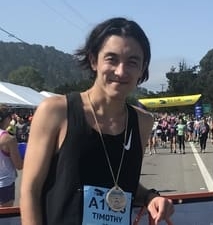 Tim Goodwin, UC Santa Cruz
Tim Goodwin, UC Santa Cruz
Computer Science — Distributed Systems and Programming Languages
I am a 3rd year PhD student in the LSD lab at UC Santa Cruz where I am generously supported by the NSF CSGrad4US fellowship. I’m broadly interested in distributed systems and the abstractions we use to build them. Lately, I’ve been focusing on cloud-native programming models and the challenges they present to developers. My research explores how compilation techniques and automated testing can be leveraged to simplify the process of building resilient and scalable distributed applications without requiring developers to adopt specialized tooling or frameworks.
Swati Govindaraju, University of Wisconsin-Madison
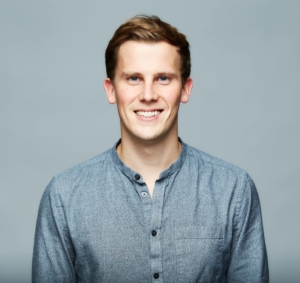 Daniel Grzenda, University of Chicago
Daniel Grzenda, University of Chicago
Computer Science — Systems, Machine Learning
Daniel Grzenda is currently an NSF Fellow studying Computer Science at the University of Chicago. He is a member of Globus Labs advised by Ian Foster and Kyle Chard. His work is focused on building systems to make AI-driven discovery faster, cheaper, and more resource efficient. Prior to returning to pursue his PhD, Daniel worked at two biotechnology startups in the Bay Area, and led initiatives for non-profit data science at the University of San Francisco and the University of Chicago. He has recieved a Masters degree in Data Science from the University of San Francisco and undergraduate degrees in Biology and Computer Science from the University of Vermont.
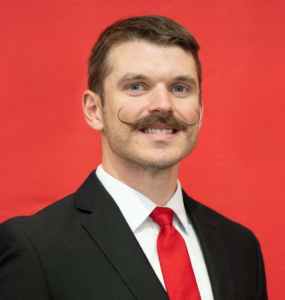 Michael Hajostek, University of North Dakota
Michael Hajostek, University of North Dakota
Computer Science
A first year PhD student at UND, he had completed his undergrad from Minnesota State University Moorhead with a double B.S. in Computer Science and Information Technology. Spent a few years in industry working on a diverse set of projects for a variety of clients from startups to federal agencies. In his free time he helps coach and lead the MSUM Club hockey team, likes to garden and go for runs.
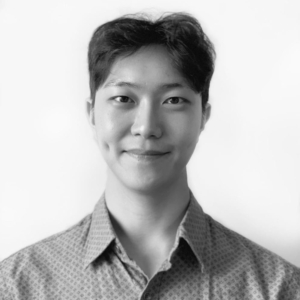 Seungwook Han, MIT
Seungwook Han, MIT
EECS — Generative Modeling, Foundation Models, LLM Alignment
Seungwook is currently a PhD Student at MIT CSAIL advised by Prof. Pulkit Agrawal. He received his undergraduate degree from Columbia. Previously, he has worked on improving the training efficiency of generative models. More recently, he has been building foundation models for decision making and investigating how to align language models more efficiently for the personalization of LLMs.
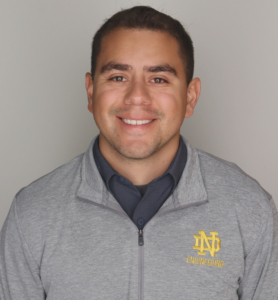 Demetrius Hernandez, University of Notre Dame
Demetrius Hernandez, University of Notre Dame
Computer Science and Engineering — Cyber-Physical Systems and Assured Autonomy
Demetrius Hernandez is a first-year Ph.D. student in the Computer Science and Engineering Department at the University of Notre Dame, advised by Dr. Jane Cleland-Huang. His research focuses on cyber-physical systems, particularly autonomous drones for emergency response scenarios. Prior to his doctoral studies, Demetrius worked as a Computer Scientist at White Sands Missile Range, where was awarded with the Commander’s Coin for Excellence and a Certificate of Special Congressional Recognition in recognition of his outstanding achievements and contributions. As a graduate of the University of Texas at El Paso, a Hispanic-Serving Institution, Demetrius is passionate about K-12 outreach and advancing STEM opportunities for underrepresented communities.
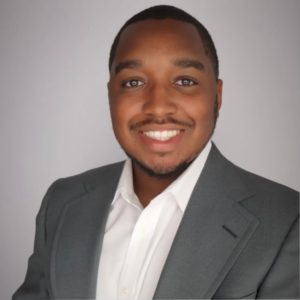 David Hill, George Washington University
David Hill, George Washington University
School of Engineering and Applied Sciences — Federated Machine Learning
David is a highly skilled software engineer with nine years of experience spanning both the private and public sectors. He earned his B.S. in Computer Science from Howard University, where he conducted and published peer-reviewed research on a Framework for IoT Data Provenance. During his time at Howard, he also conducted and presented research on the cybersecurity of satellite middleware. David later obtained his Master of Engineering degree from the University of Virginia, contributing to cutting-edge research on Direct Carbon Capture technology. Currently, he is pursuing a Doctoral degree in Artificial Intelligence and Machine Learning, with research interests in federated learning and real-time machine learning applications. In his spare time, David enjoys walking his dog, Randy, and cultivating his garden of fruits and vegetables.
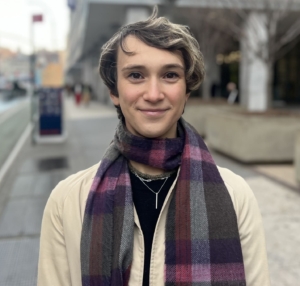
Stella Holbrook, New York University Tandon School of Engineering
Computer Science — Big Data
Hi! I grew up in Seattle, Washington and got my bachelor’s degree in geography from the University of California, Santa Barbara. Before returning to school, I worked as a GIS analyst at a mapping company. I am beginning my research at NYU Tandon in its Visualization, Imaging and Data Analysis center. In my free time I enjoy reading books and going on runs.
Autumn Johnson, University of California Berkeley
Raida Karim, University of Southern California
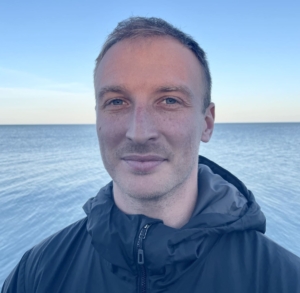 Justin Kay, MIT
Justin Kay, MIT
EECS — Computer vision, machine learning, sustainability
Justin’s develops computer vision and machine learning methods for environmental science and conservation. Before starting his PhD, Justin co-founded Ai.Fish, a computer vision software company focused on applications in sustainable fisheries and ocean conservation. As CTO from 2019–2023 he led a range of computer vision projects in partnership with government organizations such as NOAA and DFO (Canada) and NGOs such as The Nature Conservancy, the Environmental Defense Fund, and the National Fish and Wildlife Foundation. His PhD research will focus on making computer vision and machine learning methods more reliable and informative for global-scale conservation science and decision-making.
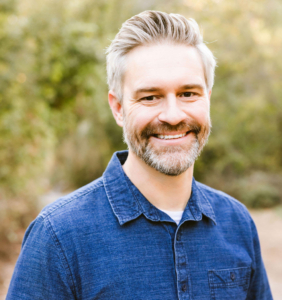 Eric Kapitanski, University of Southern California
Eric Kapitanski, University of Southern California
Computer Science — Cybersecurity
Eric Kapitanski is a NSF CSGrad4US Fellow pursuing his PhD at the University of Southern California. His advisor is Dr. Jelena Mirkovic. Eric’s current research interests center around detecting and defending against cyberattacks at the network level.
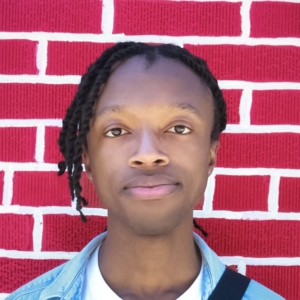 Kei Kebreau, City University of New York
Kei Kebreau, City University of New York
Computer Science — Virtual Reality and Visualization
Kei is a first-year PhD student at the CUNY Graduate Center, advised by Prof. Wole Oyekoya. They earned B.S. degrees in Mathematics and Computer and Information Sciences from Cheyney University in 2021. Before their PhD, Kei worked as a software quality engineer at Mastercard. They also conducted research as an undergraduate research assistant at Brookhaven National Laboratory, using computation to minimize the chemical energy of cadmium selenide nanoclusters by manipulating their 3D structure. As an undergraduate research assistant at Cheyney, they evaluated emotion recognition toolkits and deployed machine learning models for use in a new Audiovisual Labeled Emotion Research Platform. Kei’s current research interests include 3D reconstruction, human-computer interaction, and emotion modeling. Outside of work, they enjoy gaming, music, and reading.
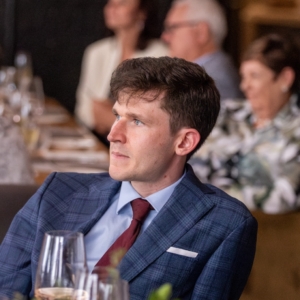 Alexander Krentsel, UC Berkeley
Alexander Krentsel, UC Berkeley
EECS — Networked Systems
Alexander Krentsel is a PhD student at UC Berkeley in the NetSys lab, advised by Scott Shenker and Sylvia Ratnasamy. His research interests are in architecting internet control systems, and reasoning rigorously about their correctness and performance. His work focuses on control systems for wide-area networks, network verification, and on network-assisted control systems for autonomous vehicles. He received a B.S. in EECS and a B.A. in Music from UC Berkeley in 2019.
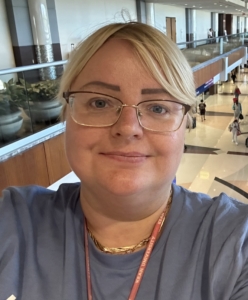 Yulia Kumar, Rutgers University
Yulia Kumar, Rutgers University
Electrical and Computer Engineering — Distributed Machine Learning, Models Quantization
Yulia (Julie) Kumar has been a Lecturer at Kean University (Union, NJ) since 2019. She is a Kean University alumni with a BS in Computer Science and an MS in Computer Information Systems (with Distinction). Her courses include Client and Server-side Web Programming (HTML/CSS/JS/Frameworks), Software Development with Frameworks (C#,.NET), Python Programming (Python, its libraries and frameworks), Computer programming (Java), and Data Structures (Java). Previously, she taught Fundamentals of Computer Science and Intro to AI. Ms. Kumar began her teaching career at the college level in 2002 when she earned her doctorate and PhD in Finance in 2007 (outside of the US). Since receiving her degree, she has been back and forth between the industry and academia, ensuring her skills are sharp and current. Her current research interests include AI, in particular Machine Learning, Deep Learning, NLP, recommender systems, transformers, and LLMs; she is also interested in HCI and works on various topics related to CS education. Ms. Kumar began her journey toward PhD in Electrical and Computer Engineering @Rutgers in Fall 2024.
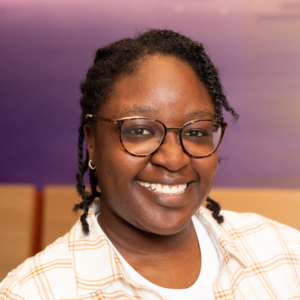 Mora Labisi, Northwestern University
Mora Labisi, Northwestern University
Computer Science & Learning Sciences — Computer Science Education, Software Engineering Education
Mora is a PhD Student in the Computer Science + Learning Sciences program advised by Nell O’Rourke. She is passionate about bridging the gap between computer science education and real-world software engineering. Prior to embarking on her Ph.D. journey, Mora was crafting code and systems as a Software Engineer at Starbucks. When not immersed in her work, Mora delights in caring for her hamsters, diving into language learning, singing at karaoke, and conducting monthly trivia nights for a small but mighty international group of friends!
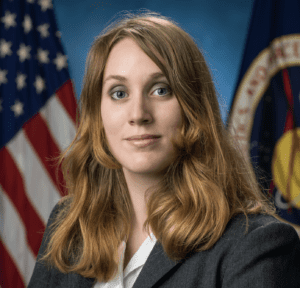
Leah Lackey, Cornell University
Electrical & Computer Engineering — Robotics
My research area is robotics, with a particular interest in motion planning and incorporating my past research experience with machine learning. I have always had a great interest in robotics due to its multidisciplinary nature and great potential to positively impact society. I also have a deeper, more personal draw to it from my experience undergoing a surgery with the da Vinci robotic surgical system. While I’m still deciding on a specific project to dive deeper into, I am heavily influenced by a desire to help people through robotics. My undergraduate Electrical & Computer Engineering degree was completed at Western Washington University in Bellingham, WA. I have also completed an internship at NASA and a research position at Yale University, which have helped hone my skills and interests.
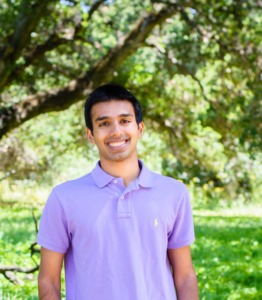 Vihan Lakshman, Massachusetts Institute of Technology
Vihan Lakshman, Massachusetts Institute of Technology
EECS — Machine Learning and Systems
I am a first-year computer science PhD student at MIT working at the intersection of machine learning, high-performance computing, and systems. Prior to MIT, I spent four years as a scientist at Amazon Search and another two years working on resource-efficient deep learning systems at an early-stage startup. And before that, I studied applied mathematics at Stanford University with a focus in theoretical computer science.
Medina Lamkin, University of Washington
Paul G Allen School of Computer Science and Engineering — Data Visualization
Medina attended Portland State University where she earned her Bachelor of Science in Computer Science and a Minor in Mathematics. As an undergrad, she worked on a machine learning research project that sparked her interest in research. Following her graduation, she spent the next three years exploring different areas of research and learning about STEM education. Through this work, she collaborated with professionals from a wide variety of backgrounds, which highlighted the important role data visualization played in communicating information. This experience inspired her to pursue a PhD in computer science with a focus on data visualization. She is now a PhD student with the Paul G Allen School of Computer Science and Engineering at the University of Washington.
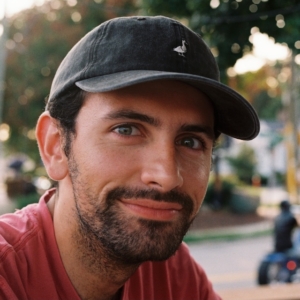 Ashton Larkin, University of Washington
Ashton Larkin, University of Washington
Computer Science — Robotics
Ashton is a PhD student at UW advised by Siddhartha Srinivasa. His research interests are in dexterous and contact-rich robotic manipulation. Before his PhD, Ashton spent several years working as a software engineer in the robotics industry. He received his B.S. in Computer Science from Brigham Young University in 2019.
Robin Linzmayer, Columbia University
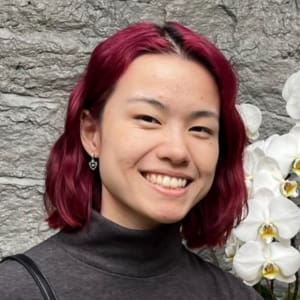
Yucen Lily Li, NYU
Computer Science — Machine Learning
Lily is a PhD student at NYU advised by Andrew Gordon Wilson. Her research broadly focuses on machine learning generalization and probabilistic deep learning, and she is also interested in applying uncertainty quantification to scientific domains. Previously, Lily was part of the Bayesian Modeling team at Meta, where she contributed to the development of probabilistic programming languages. She earned her undergraduate degree in Computer Science from Carnegie Mellon.
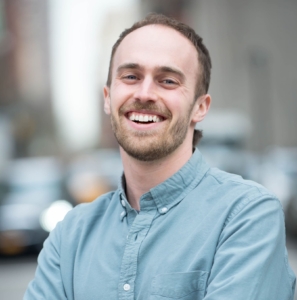 Travis Lloyd, Cornell University
Travis Lloyd, Cornell University
Information Science — Social Computing & Computational Social Science
Travis Lloyd is a public interest technologist interested in social technologies. Prior to joining Cornell he spent almost a decade working as a software engineer for organizations ranging from large public companies to small legal aid startups. He holds a combined A.B.-Sc.B degree in Computer Science and Music from Brown University.
Cade Lueker, CU Boulder
Computer Science — Programming Languages
I am a Computer Science student from Brooklyn NYC. I Moved to Colorado in 2022 to work as a software engineer before feeling that I should go back into academia. I researched various programs and found the CUPLV lab at CU Boulder. The research aligned perfectly with my interests and the professors were extremely welcoming and friendly. My current advisor told me about CSGrad4US and I applied just in time. I have been loving PhD life although it is hard and look forward to the future!
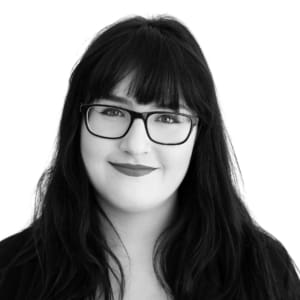 Nina Lutz, University of Washington
Nina Lutz, University of Washington
Human Centered Design Engineering Department — CSCW, HCI, Sociotechnical Systems, Computational Photography, Mis/Disinfo, Online Harm, Visual Media
Nina Lutz is a PhD student at the University of Washington where she tries to use computers to make us think about other people. She does this using mixed methods approaches to examine how visual media reifies and exacerbates online and offline harms to intersectionally marginalized communities. Lutz believes that no one can escape visual culture and that it has uniquely powerful ways for malicious actors to enact harm within sociotechnical systems, particularly social media platforms. Along the way, she strives to create tools for other researchers to better collect, investigate, and analyze visual media in their own research agendas.
Ian Magnusson, University of Washington
CSE — Language Models
Hi, I’m Ian! I do AI research at University of Washington and the Allen Institute for AI with Noah Smith and Pang Wei Koh. I’m interested in the science of language modeling, especially advancing evaluation to better understand scaling behavior and robustness across textual domains.
Previously, I was a PYI at AI2. I got my MS in computer science from Northeastern University, and interned at AWS AI Labs and SIFT. I also hold a BA in cultural anthropology from Bard College.
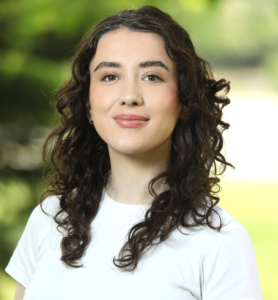 Evanjelin Mahmoodi, University of California Los Angeles
Evanjelin Mahmoodi, University of California Los Angeles
Computer Science — Computational Biology
Hi! My name is Evanjelin, and I am a computer science PhD student at UCLA. My research interests include applying Bayesian statistics and causal modeling to interesting biology/genomic problems.
Joseph Majesky, University of Massachusetts Amherst
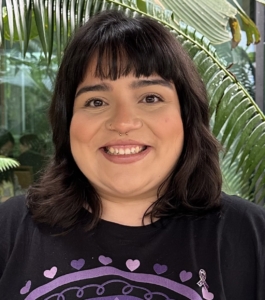 Jessica Medina, Drexel University
Jessica Medina, Drexel University
Information Science — HCI, online social support, online communities, health and wellbeing
Jessica graduated with her B.S. in Computer Science from University of Central Florida. She worked as a full stack developer in the health industry and as a software engineer in the aviation industry. She started her Ph.D. in Information Science at Drexel University under the advisement of Dr. Afsaneh Razi. Her research interests include: HCI, health and wellbeing, online social support and communities for people living with epilepsy. Jessica is a dog mom to a working service dog named Shay and a non working dog named Chewie.
Antero Mejr, Tufts University
Computer Science — Formal Methods
Prior to joining Tufts, I was a Senior Software Engineer in the medical imaging industry, designing software for CT, MRI, and surgical fluoroscopy devices. My primary interest was developing methods for building safe, effective, and concurrent scientific software. I also enjoy contributing to open-source projects, particularly those that involve functional programming. These interests led to my current research area, developing verification techniques to ensure the correctness of complex, real-world software systems. This year, I joined the TuPL (Tufts Programming Languages) research group, where I will begin my research with my advisor Jeff Foster. I hope that my work may advance the cause of making formal methods more accessible and prevalent in the systems we depend on for everyday life.
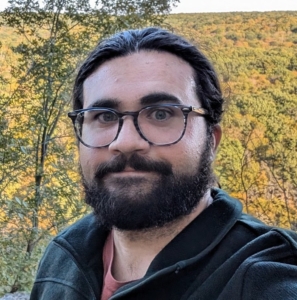 Daniel Meyer, Columbia University
Daniel Meyer, Columbia University
Computer Science — Computational Biology
Dan is a 2nd year Computer Science PhD student at Columbia University. He is a member of David Knowles’ lab where he uses machine learning tools and techniques to study gene regulation. Prior to joining the Knowles lab, Dan worked for 5 years as a Computational Associate at the Broad Institute in the lab of Steve McCarroll, where he contributed to a variety of projects, prominently around “stem cell villages”. Dan earned his undergraduate degree in Computer Science from Tufts University in 2018.
Andres Meza, UC San Diego
Computer Science and Engineering — Hardware Security
Andres Meza is a PhD student at the University of California San Diego (UCSD), La Jolla, CA 92093 USA. His research interests include hardware security, optimization of machine learning models for hardware deployment, and computer vision. Meza received a B.S. in both computer science and cognitive science with a machine learning and neural computation specialization from UCSD.
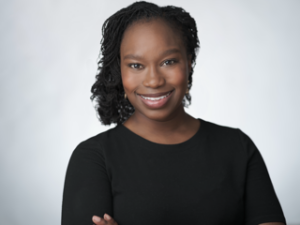 Micah Morgan, University of Maryland
Micah Morgan, University of Maryland
College of Information — HCI, Quantum Computation, and Health Information
Micah Morgan is a first year PhD student at the University of Maryland (UMD), where she is a CSGrad4US and MathQuantum Fellow. Her research considers whether quantum computation can improve the information landscape for clinicians and caregivers of children with rare disease. Prior to joining UMD, Morgan worked as the Head of Public Affairs for SeedAI. There, she worked alongside Congress to improve their understanding of artificial intelligence technologies toward more ethically sound policies.
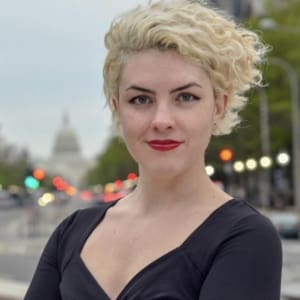 Sarah Mundy, Columbia University
Sarah Mundy, Columbia University
Computer Science — Malware in Quantum Computing
Sarah Mundy is a first-year PhD student advised by Professor Salvatore Stolfo. Her research interests are in cybersecurity applied to quantum computing, specifically looking at potential malware attack vectors. Previously, Sarah has worked with NASA’s Office of the Chief Human Capital Officer in the workforce planning group, the Pentagon’s Office of the Undersecretary of Defense Research & Engineering under the Principal Director of AI, on DARPA’s Media Forensic program, and with various military and intelligence research groups focused in the AI and ML spaces. She graduated from the University of Nevada, Reno with her BS in electrical engineering in 2013. She has received the Echostar Spot Award for outstanding performance on a satellite networking project, NAVAIR’s Flight Test Excellence Award for her work planning Tomahawk missile software test flights, the UNR Outstanding Student Service Awards for both the College of Engineering and the Department of Electrical Engineering, 1st and 2nd place in the IEEE Region 6 paper and design competition, respectively, and is a Tau Beta Pi engineering honors society lifetime member. Her hobbies include running, lifting, hiking, reading science fiction and non-fiction, and taking care of her orchids and potted fruit tree.
Natalie Neamtu, University of Washington
Matt Nicholson, University of Colorado Boulder
Information Science — Social Computing
Matt Nicholson is a PhD student in the Department of Information Science at CU Boulder, working with Professor Bryan Semaan. His research examines how online communities coordinate and govern within themselves and between each other. Matt earned a BS in Computer Science, with a second major in Mathematical Methods in the Social Sciences, from Northwestern University and prior to CU, he spent several years working as a business analyst. In his free time, Matt enjoys watching baseball, the television show Survivor and hosting dinner parties where the meal centers around a bad pun.
Daniel Ojeda, Rutgers University
Krista Opsahl-Ong, Stanford University
Kevin Ouyang, Northwestern University
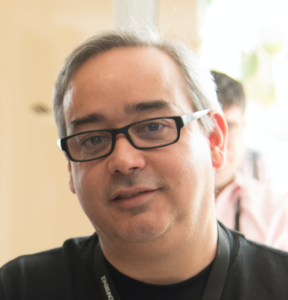 Juan Padilla, University of Puerto Rico
Juan Padilla, University of Puerto Rico
Computer Science and Engineering — Geolocation Management for AI and Autonomous Applications
Juan A. Padilla is a dedicated professional with a background in Computer Engineering from the University of Puerto Rico, Mayagüez Campus, and over 25 years of experience in technology and innovation. As Chief Strategy Officer and Lead Investigator, he has contributed to various impactful projects, including geolocation-enabled systems, disaster response applications, and addressing solutions for underserved communities. His work has been supported by grants from organizations such as the National Science Foundation and the Department of Defense.
Juan is passionate about using technology to solve real-world challenges and holds a U.S. patent for his Geolocation Name System, which offers a novel way to represent physical coordinates. Over his career, he has collaborated with diverse teams and organizations to develop technical solutions for industries ranging from pharmaceuticals to public services.
He is also a recipient of the NSF CSGrad4US fellowship, which supports his ongoing doctoral studies in Computer and Information Science and Engineering. Juan approaches his work with a focus on learning, collaboration, and practical impact, aiming to bridge innovation and community needs. He values teamwork and the opportunity to contribute to projects that improve lives and advance technology.
Elleen Pan, University of Chicago
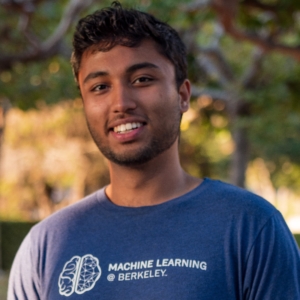 Samyak Parajuli, The University of Texas at Austin
Samyak Parajuli, The University of Texas at Austin
Electrical and Computer Engineering — AI
Samyak Parajuli is currently a PhD student at UT Austin advised by Amy Zhang. His research focuses on multimodal learning and self-supervised learning within decision-making contexts. Previously, he worked as a research engineer at Scale AI and Perplexity AI developing VLMs, LLMs, and RLHF approaches. He holds Bachelor’s and Master’s degrees from UC Berkeley.
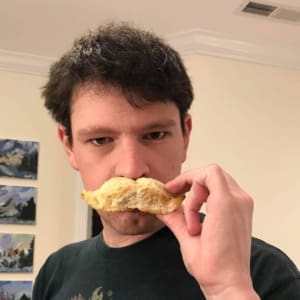 Jeff Pflueger, Northeastern University
Jeff Pflueger, Northeastern University
Computer Science — Robotics and AI
Jeff Pflueger is a 1st year PhD student in the Khoury College of Computer Sciences at Northeastern University working on robotics. He is advised by Michael Everett. His research interests are in verifiable machine learning, planning and decision making, and cognitive robotics. Jeff earned a BS in Engineering from Olin College of Engineering in 2018. Before starting his PhD, he worked as a software engineer in the autonomous vehicles and consumer robotics industries. While working, he primarily focused on robotics systems, error-reporting and logging, and motion planning. In his spare time, he likes to bake, cook, and tackle all kinds of puzzles.
Caspar Popova, University of Maryland at College Park
Amy Pu, Columbia University
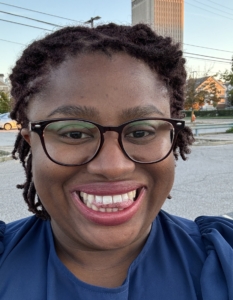 Grace Quaintance, Cleveland State University
Grace Quaintance, Cleveland State University
Electrical & Computer Engineering — Computer Engineering – Open-RAN/NextG and Satellite Communications, Controls
I’m a first year PhD student at Cleveland State University. Before returning to school, I worked for a Non-Profit hospital in the Buildings+Design department as a Facility Engineer. There, I coordinated building projects in tandem with a project team to engage architecture and/or engineering firms. Prior to that, I worked as a 911 dispatcher for 13 years. I have two undergrad degrees, a Bachelor of Electrical Engineering from Cleveland State and a Bachelor of Architecture from Florida A&M University. When I’m not learning more new things, I a busy wife and mom to two rambunctious kids.
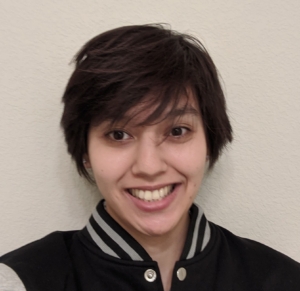 Gabriella “Nikki” Ramirez, Virginia Tech
Gabriella “Nikki” Ramirez, Virginia Tech
Computer Science — Dark Patterns and User Security and Privacy in Virtual Reality
Nikki Ramirez is a second-year PhD student focusing her research on dark patterns as well as user security and privacy in virtual reality. She is advised by Dr. Brendan David-John. Previous projects included virtual monitors in augmented reality, subtle gaze guidance in a 360° video, and visceral notices for eye-tracking. Currently, she is exploring user privacy concerns and needs in regards to potential risks and dark patterns in extended reality (virtual reality, augmented reality, mixed reality). G. Nikki Ramirez graduated from University of Colorado Boulder in 2019 with a BA in Computer Science and Minors in History and English Creative Writing. She previously worked at University of Colorado Denver’s Physics Department with the Super Cryogenic Dark Matter Search (SCDMS) collaboration as a Staff Scientist, as well as at Micro Focus as a Software Engineer II. In her free time, Nikki writes science fiction/fantasy novels, plays video games, and runs table-top RPG campaigns.
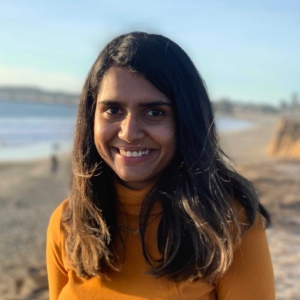 Harine Ravichandiran, University of Washington
Harine Ravichandiran, University of Washington
Computer Science — Robotics
Harine is a PhD student at the Paul G. Allen School of Computer Science and Engineering at the University of Washington, where she is advised by Prof. Byron Boots. Her research lies at the intersection of robot learning and perception, aiming to develop collaborative robotic systems capable of performing complex tasks in unstructured environments. Before joining UW, Harine worked on autonomous vehicles at Overland AI and Waymo. She earned her Master’s and Bachelor’s degrees from Stanford University.
Jay Rodolitz, Northeastern University
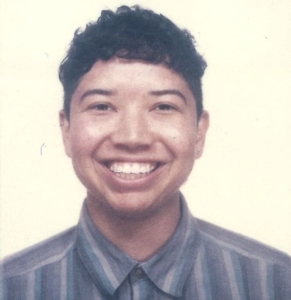 Jamie Rosas-Smith, Johns Hopkins University
Jamie Rosas-Smith, Johns Hopkins University
Computer Science — NLP and Speech Processing
Jamie Rosas-Smith is a first-year PhD student in the Center for Language and Speech Processing (CLSP) at Johns Hopkins University, where he is advised by Prof. Anjalie Field. His research interests are primarily focused on natural language and speech processing for social applications. Prior to joining CLSP, Jamie completed his bachelor’s degree in computer science at Wellesley College, conducted research in the areas of prosody, acoustics, and algorithms for detecting speech irregularities at MIT’s Research Laboratory of Electronics, and worked at Chase as a software engineer. He is a proud recipient of both the CSGrad4US Fellowship and the Percy Pierre Doctoral Fellowship.
Parya Roustaee, University of California Irvine
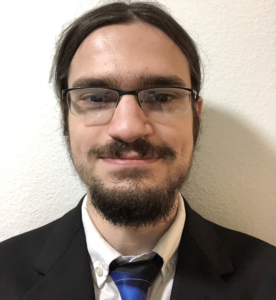 Ryan Rubel, University of Southern California
Ryan Rubel, University of Southern California
Thomas Lord Department of Computer Science — Robotics, Machine Vision
Ryan Rubel is a Ph.D. student at the University of Southern California, where he researches perception algorithms for safety-critical robotics under Professors Lars Lindemann and Jyo Deshmukh. Ryan’s work is motivated by the development of autonomous robotic systems for space exploration, which he believes will be essential to studying many of the Solar System’s more distant bodies. Prior to joining USC, Ryan spent two years researching multimodal machine vision algorithms at Noblis. He holds a B.S. in Computer Science from Johns Hopkins University with minors in Robotics, Mathematics, and Applied Mathematics and Statistics. In his spare time, Ryan leads the pathfinding team of the USC Field Robotics Lab and enjoys playing video games.
Pravina Samaratunga, Boston University
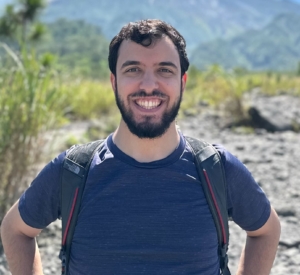 Daniel Sainati, University of Pennsylvania
Daniel Sainati, University of Pennsylvania
Computer and Information Science — Programming Language
Daniel is a PhD student in the PLClub at the University of Pennsylvania, where he studies type systems and language design, with an eye towards leveraging types to guarantee program correctness. Before starting his PhD, Daniel worked as a software engineer at Meta, on the Flow type checker for JavaScript, and at the Flow Foundation, on the Cadence language. Daniel holds a Bachelor of Science and a Master of Engineering degree from Cornell University.
Madelyn Shapiro, University of California Santa Barbara
Hrishee Shastri, University of Chicago
Computer Science – Data, Data Science, Data Management
I am currently a PhD student at the University of Chicago. I originally did my B.A in math-computer science at Reed College in Portland, Oregon, graduating in 2021. Following that, I spent 3 years working in the tech industry in Seattle, Washington. I am from Seattle, Washington. Outside of work, I like to play soccer, swim, watch squirrels frolic, and seek out cozy neighborhood bookstores, coffee shops, and grocery stores.
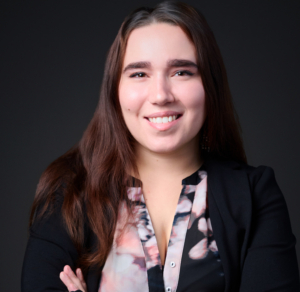 Eden Shaveet, Cornell University
Eden Shaveet, Cornell University
Information Science — Multimodal Information
Eden Shaveet is a Ph.D. student at Cornell University in the Department of Information Science advised by Tanzeem Choudhury (People-Aware Computing Lab). Her work centers multimodal information extraction and interpretation methods for heath inferencing. Eden holds an MS in Health Informatics and Analytics from Tufts University School of Medicine and completed post-baccalaureate training as a Bridge to Ph.D. Scholar at Columbia University in the Department of Computer Science.
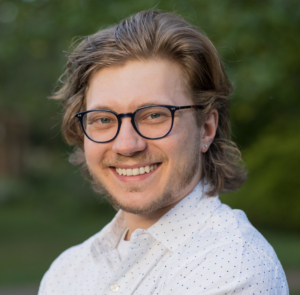 Filipp Shelobolin, Columbia University
Filipp Shelobolin, Columbia University
Computer Science — Fairness & Explainability
Filipp Shelobolin is a PhD student at Columbia working with Professors Augustin Chaintreau and Jeanette Wing on the fairness and explainability of complex machine learning systems.
After receiving a BS in Statistics and Machine Learning from Carnegie Mellon in 2021, Filipp worked as a Research Scientist at Upstart for three years. Filipp enjoys writing, performing improv comedy, playing pool, and reading almost anything.
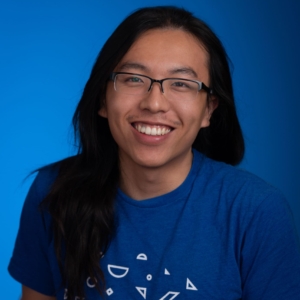
Di Yang (Steven) Shi, The University of Texas at Austin
Computer Science — Robotics
Steven graduated from Brown University with a Sc.B. in Computer Science in 2018. Prior to beginning his Ph.D. program, he worked as a software engineer at SingleStore and Google. He is currently a third-year Ph.D. student in Computer Science at The University of Texas at Austin. He is generously funded by the NSF CSGrad4US program as one of its inaugural fellows and is currently researching high performance simulation for multi-agent reinforcement learning under the supervision of Dr. Peter Stone. Steven is proud to be a first-generation immigrant and college student. Outside of academia, Steven enjoys playing board games and soccer.
Ashley Shin, University of California, San Diego
Computer Science and Engineering — Machine Learning
Ashley is a first year PhD student at UC San Diego, advised by Julian McAuley. Her research interests include retrieval, recommender systems, NLP, and ML. Overall, she is interested in helping people find what they want. She is currently working on projects in generative sequential recommendation. Before UCSD, Ashley worked on biomedical text retrieval at the National Institutes of Health (NIH). She studied philosophy in undergrad. She likes to write prose, play guitar, and make music.
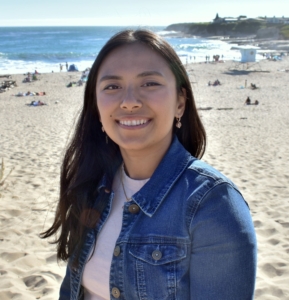 Kaleen Shrestha, University of Southern California
Kaleen Shrestha, University of Southern California
Computer Science — Human-Robot/Computer Interaction
Kaleen is a second year Ph.D. student in the Computer Science department at the University of Southern California working at the Interaction Lab with Professor Maja Matarić. She is broadly interested in conflict resolution and is investigating how socially assistive robots can help children learn to resolve conflict. Prior to USC, she worked as a Research Analyst on projects related to automatic speech recognition for low-resource languages and analyzing dehumanization in social media at the University of California, Santa Cruz in the Natural Language Processing department. She received a B.S. in Computer Science and an M.S. in Natural Language Processing from the University of California, Santa Cruz.
Shani Spivak, Northeastern University
Khoury College of Computer Science — AI ethics and governance, Vis x ML
Shani Spivak is a doctoral student in the Khoury College of Computer Sciences at Northeastern University, and is a Khoury Distinguished Fellow and NSF CSGrad4US Fellow. Prior to the PhD program, she worked as a Director for Emerging Technology and International Collaboration at the National Security Council (NSC) focusing on the development and coordination of national artificial intelligence, digital assets, and digital identity policy. Before the NSC, she served as the FBI’s Senior National Intelligence Officer for Technology, and as an adjunct professor at the National Intelligence University. While working at the FBI, Shani founded a Women in Tech advocacy group and helped drive AI ethics and governance work. She has a B.S. in electrical engineering from Boston University, an MBA from NYU, and is US Navy veteran, having served in the Seabees as part of the Navy Civil Engineer Corps.
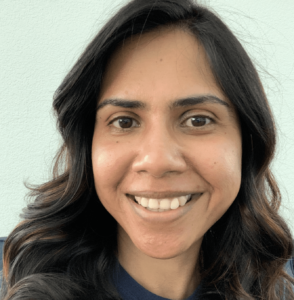 Shalini Sushri, Georgia Tech
Shalini Sushri, Georgia Tech
Computer Science — AI/ML
I am a CS PhD student at Georgia Tech and a CSGrad4US Fellow. My research focuses on advancing the field of artificial intelligence by developing AI systems that can reason, and explain their decisions.
Specifically, I explore two key areas:
Reasoning and Problem-Solving: How can we enhance AI systems’ capacity to reason logically, identify relevant information, and generate effective solutions?
Explainable AI: How can we enable AI systems to provide clear and concise explanations for their decisions, thereby increasing user trust and accountability?
Through my research, I aim to develop AI systems that are not only intelligent but also transparent and trustworthy. By addressing these fundamental challenges, we can unlock the full potential of AI and create a future where AI benefits society as a whole.
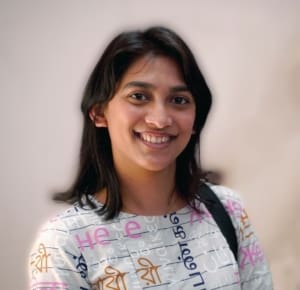 Arghamitra Talukder, Columbia University
Arghamitra Talukder, Columbia University
Computer Science — Computational Biology
Argha is a Computer Science PhD student at Columbia University co-advised by Itsik Pe’er and David Knowles. Her research focuses on applying machine learning and statistical modeling to study splicing regulation. She completed her bachelors in Electrical Engineering at Texas A&M University where she explored protein interaction prediction using deep learning models. Following graduation, she worked for two years as a Test and Product Engineer at Texas Instruments in Dallas. In her free time, Argha enjoys watching films in different languages, using the experience to learn new language skills.
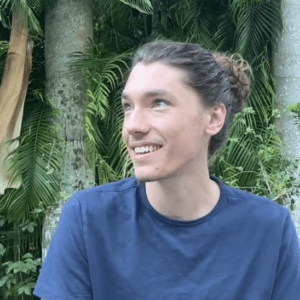 Ian Michael Terry, UC Santa Cruz
Ian Michael Terry, UC Santa Cruz
Computer Science and Engineering — Computational Ecology
I was born in Miami, FL and studied computer science at Florida State University. When I was graduating, I had aspirations of continuing my education, but I also wanted to try working a job with my newfound degree. After 5 years of working as a software engineer, the possibility of a return to academia felt entirely out of reach, until I one day received an email from the NSF. Since then, CSGrad4US has helped me navigate the path back to academia; I am now a new PhD student pursuing interdisciplinary research in computer science! It’s a new world for me, and I am very excited for what’s to come.
Kushal Tirumala, Stanford University
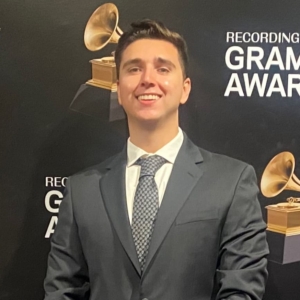 Patrick Jose Toral, University of Southern California
Patrick Jose Toral, University of Southern California
Viterbi School of Engineering — Machine Learning for Healthcare
As a Computer Science PhD student at the University of Southern California since September 2022, I specialize in machine learning applications in Neuroimaging and secure federated learning. My work includes adapting advanced convolutional neural networks for 3D Brain MRI analysis for applications to Alzheimer’s and Autism research. My academic and professional journey is driven by a passion for impactful research in healthcare technology and a deep interest in the societal implications of AI. As a NSF CSGrad4US PhD Fellow and active member of the academic community, I am committed to advancing both my technical skills and understanding of AI’s broader impact.
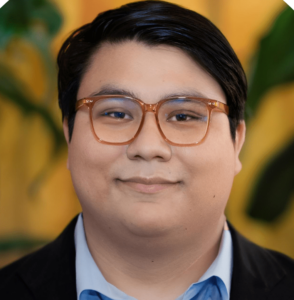 David M Torres-Mendoza, UC: Santa Cruz
David M Torres-Mendoza, UC: Santa Cruz
Computer Science & Engineering — Data Science
David Manuel Torres-Mendoza is a committed computer scientist and data scientist, currently pursuing his Ph.D. in Computer Science and Engineering at the University of California, Santa Cruz. Passionate about enhancing equity and accessibility in computing and data science, he strives to make data communication clear, engaging, and fun. During his undergraduate studies at UCSC, David was deeply involved in an infant development lab, refining his skills in experimental design and data analysis. This experience shaped his professional path and led to his role at a non-profit focused on computer science education research. Here, he excelled in data analysis and management, developing a passion for broadening computing participation. His work significantly contributed to making computing more inclusive. David’s technical proficiency includes tools like Excel, SPSS, Dedoose, Qualtrics, SurveyGizmo, and programming languages such as Python and R. His expertise enables effective management of complex data science concepts across diverse contexts. David stands out as a skilled technical practitioner and a creative force for educational engagement and transformative change in data science.
Bernardo Trindade, George Washington University
Electrical and Computer Engineering — Cybersecurity
Bernardo is currently enrolled as a PhD student at the George Washington University as a member of the GraphLab. Bernardo received his undergraduate degree in Computer Science with an additional focus on Mechanical Engineering from the Colorado School of Mines in 2016. His research focus is on applications of graph theory and graph neural networks to investigating cybersecurity incidents at the enterprise level.
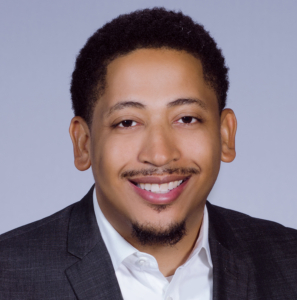 Bryan Wallace, Georgia Institute of Technology
Bryan Wallace, Georgia Institute of Technology
Human Centered Computing — CS and AI Education Innovation and Equity , Broadening Participation In Computing
Bryan Wallace, a proud graduate of Morehouse College and current Ph.D. student at Georgia Tech, is passionate about advancing education through the intersection of technology, creativity, and accessibility. With a background in software engineering and over a decade of experience in K-12 education, he has dedicated his career to making computer science more inclusive and impactful.
In his professional journey, he has developed culturally relevant computer science programs, designed immersive curricula, and led transformative initiatives that expand access to technology education. His Ph.D. research focuses on Computing in Education, Human-Centered Computing, and creating tools that make CS accessible to underserved communities.
Beyond his professional pursuits, Bryan’s energy and curiosity extend to other passions. An avid cook, music enthusiast, and trivia aficionado, he balances his work with training for his first triathlon. Whether designing inclusive STEM initiatives or exploring new ways to solve complex problems, Bryan is on a mission to empower the next generation of innovators and ensure that computer science education is a tool for equity and opportunity for all.
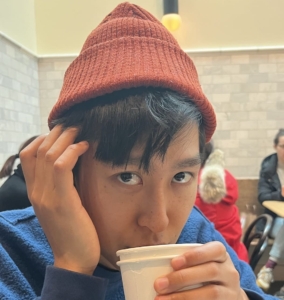 Kevin A. Wang, Brown University
Kevin A. Wang, Brown University
Computer Science — Computational Game Theory (AI / ML / Game Theory)
I research computational game theory: the intersection of computer science and game theory. Specifically, I am interested in building agents that can play imperfect-information 2-player zero-sum games such as poker and beyond. In theory, this means developing agents that converge to a Nash equilibrium. In practice, this means developing agents that beat the best humans. In particular, I focus on building agents that use “lookahead search”. I also have a broader interest in the general topic of building agents that use “system 2 thinking” / model-based planning (of which lookahead search in games is one example). I grew up in California and studied computer science at UC Irvine. After graduating in 2018, I software engineered at a startup. At the end of 2020, I quit my job and pursued research as a volunteer research assistant with Stephen McAleer and Roy Fox. In 2022-23, I was an AI Resident with Noam Brown and Gabriele Farina at Meta AI (FAIR). I am now a PhD student at Brown University advised by Amy Greenwald. In my spare time I enjoy being in NYC, watching the LA Lakers, and losing at Dota 2.
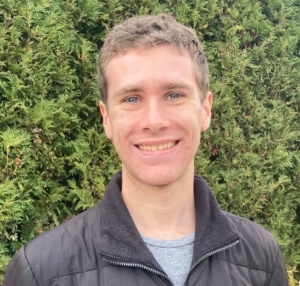 Matthew West, University of Chicago
Matthew West, University of Chicago
Computer Science — Systems
Matthew West is from South Jersey, right outside of Philadelphia. He graduated from Lehigh University with a bachelor’s in computer science and biology in 2020 and then a master’s in computer science in 2021. He worked for AVEVA (formerly OSISoft) as a software engineer for 2 years after graduating. He currently lives in Chicago where he is pursuing a PhD in computer science at the University of Chicago. He is interested in improving computer systems for data science and machine learning. In his free time, he enjoys playing videos games, spending time with friends, and reading the occasional book.
Anthony Wise, University of Washington
Computer Science and Engineering — Security and Privacy/Visualization
Anthony attended Virginia Tech and earned his Bachleor of Science in Computational Modeling and Data Analytics with a minor in Applied Mathematics and Physics. Immediately after undergrad, Anthony went on to do research and development work for the Department of Defense in the Washington D.C area. Having seen how research projects are ran, Anthony wanted to influence policy making in the DoD sector and he also aspires to become a professor. Being proactive, he applied for the NSF CsGrad4Us and is now a 1st year graduate student in Computer Science and Engineering at the University of Washington. His research area is in Security and Privacy and Visualization.
Caleb Wohn, Virginia Tech
Alexander Xiong, University of California Berkeley
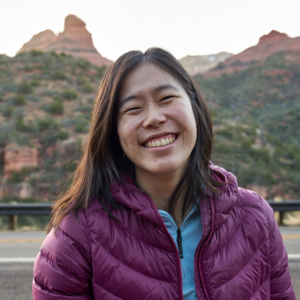 Claire Yang, University of Washington
Claire Yang, University of Washington
Computer Science and Engineering — Human-Robot Interaction, Computational Cognitive Science
I am a PhD student at the University of Washington’s Paul G. Allen School of Computer Science & Engineering. I am interested in human-robot interaction and computational cognitive science–I believe that a greater understanding of people can lead to better technology design, especially in assistive robotics. I graduated from University of Minnesota in 2021 and worked as a backend software engineer at HubSpot for a few years before starting graduate school. Outside of work, I enjoy yoga, rock climbing, and learning new things via different side projects.
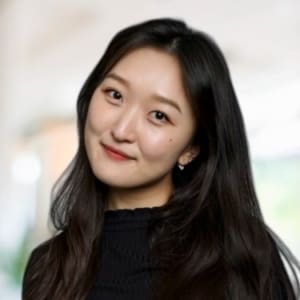 Jina Yoon, University of Washington
Jina Yoon, University of Washington
Computer Science & Engineering — Human-Computer Interaction
Jina Yoon is a PhD student of Computer Science & Engineering at the University of Washington, advised by Professor Amy X. Zhang. As a social computing researcher, her work explores the tension between user agency and platform design in online community moderation, especially for youth and neurodivergent populations. She advocates for online safety approaches that empower teens and augment their social strengths. Her research also examines how social media platforms can both help and harm the neurodiversity movement, especially for intersectional identities. Before starting her doctoral degree, she worked at Riot Games on the League of Legends Global Player Community team, as well as at Microsoft on device management and security. She earned her BAs in Computer Science and Modern Culture & Media from Brown University.
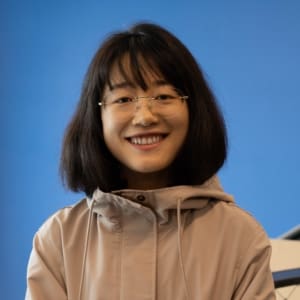 Lirong Yuan, CMU
Lirong Yuan, CMU
S3D — Software Engineering, Programming Languages, Systems, and Security
I am co-advised by Prof. Rohan Padhye and Prof. Christian Kästner. I plan to conduct research on topics including static and dynamic analysis of software dependency graphs, software bill of materials (SBOMs), sandboxing, and related areas.
For Prospective Fellows
NSF CSGrad4US Fellowship applicants are strongly advised to read the entire DCL carefully to ensure that they understand all the requirements. NSF CSGrad4US Fellowship applicants must self-certify that they intend to pursue a research-based doctoral degree in an eligible field of study and that they meet all eligibility criteria.
To be eligible for the NSF CSGrad4US Fellowship program for the current application year, applicants MUST:
-
- Be a U.S. citizen, national, or permanent resident. The term “national” designates a native resident of a commonwealth or territory of the United States, such as American Samoa. It does not refer to a citizen of another country who has applied for United States citizenship and who has not received U.S. citizenship by the application deadline;
- Have graduated with a bachelor’s degree before January 1, 2025;
- Have demonstrated CISE core competency;
- Have not been enrolled in any degree-granting program after January 1, 2025;
- Have never enrolled in and have no pending application or offer of admission for a doctoral degree-granting program in a CISE discipline; and
- Will be prepared to attend graduate school enrolling in a research-based doctoral degree program in a CISE discipline no later than Fall 2027 (CISE disciplines are computer science, computer engineering, and information science).
Individuals are not eligible to apply if they propose to enroll in a discipline outside of CISE.
Individuals who are enrolled, or will enroll, in a graduate degree program while on a leave of absence from a professional degree program or professional degree-graduate degree program are ineligible for an NSF CSGrad4US Fellowship.
To receive the NSF CSGrad4US Fellowship, individuals must participate in the NSF CSGrad4US Mentoring Program. For more information about the mentoring program and the preparation for CISE doctoral programs, please refer to the Mentoring Program webpage https://cra.org/cra-wp/cs-grad4us/#Guidance.
This page provides guidance on what PhD programs are generally recognized to be CISE PhD programs and it provides insight into the background CISE PhD programs expect from their incoming PhD students. We align our descriptions with CISE’s mission which states “The NSF CISE Directorate supports research and education projects that develop new knowledge in all aspects of computing, communications, and information science.”
What is the “CISE” Discipline?
- CISE is NSF’s Directorate for Computer and Information Science and Engineering. It supports “research and education on the principles and uses of advanced computing, communications, information systems and advanced cyberinfrastructure across science and engineering.”
- For CSGrad4US, the CISE discipline represents the research areas supported by the core programs in the divisions of the CISE Directorate. Every Division in CISE lists its core programs. For example, see the core programs in the one division of CISE called Computing and Communication Foundations (CCF).
What is a CISE PhD program?
- A CISE PhD program is a PhD program offered by a Computer Science (CS) Department, Computer and Information Sciences (CIS) Department, Computer Engineering (CE) Department, School or College of Computing, and most Information Science (IS) Departments. The research area a student chooses needs to be a research area supported by one of the core programs in NSF’s CISE directorate. For the purposes of the NSF CSGrad4US Fellowship program, all qualifying institutions and programs must be within the United States, its territories or possessions, or the Commonwealth of Puerto Rico.
- Each PhD program in the US has a Classification of Instructional Programs (CIP) code. PhD programs with CIP codes 11.01 (CIS), 11.04 (IS), 11.07 (CS), or 14.09 (CE) are CISE PhD programs. If a CS/CIS/CE department has a PhD program with another CIP code, it is generally considered a CISE PhD program.
What does not qualify as a CISE PhD program?
- A PhD program not housed in a CS/CIS/CE department or not having the CIP code 11.01 (CIS), 11.04 (IS), 11.07 (CS), or 14.09 (CE) is not a CISE PhD program. This includes a number of interdisciplinary programs; programs in bioinformatics offered by a biology department or a medical school; statistics programs; data science programs in Arts/Humanities/Social Science departments; library science programs; learning science programs not joint with a CISE department; quantum science programs in physics or chemistry.
- A fellowship recipient considering a non-CISE PhD program should contact CRA (csgrad4us-support@cra.org). In rare situations, NSF may approve such a program.
What is the background expected for admission to a CISE Ph.D. program?
Expected background varies somewhat from program to program and the summary given below addresses the most common admission expectations. They include,
- A CS/CIS/CE BS, BA, or MS is a standard expectation for Ph.D. admission in a CISE program.
- Having a degree in a STEM field and a minor in CS/CE/CIS or equivalent experience in industry. More specifically, CISE Ph.D. programs expect a formal education or experience equivalent to a solid programming background obtained in 1-2 programming courses, as well as knowledge typically acquired in data structures, algorithms, discrete mathematics, and systems programming courses.
- Having a degree in a non-STEM and a minor in CS/CE/CIS or equivalent experience in industry generally meets expectations of a CISE Ph.D. program if the applicant has a solid programming background obtained in 1-2 programming courses, as well as knowledge typically acquired in data structures, algorithms, discrete mathematics, and systems programming courses, and has the expected math background. The math background in most CISE Ph.D. programs includes Calculus 1, 2, and 3, linear algebra, statistics and probability.
- Having completed a CS+X undergraduate program is generally considered as having the knowledge of a minor in a CISE field.
What is research?
Research is the process of extending human knowledge beyond what is currently known. When we conduct research, we explore open problems, create a hypothesis for what we expect to observe, and then use techniques and tools developed for rigorous scientific study to test and evaluate our hypothesis for its validity. We write technical papers describing our research and then share our findings with experts in the field for critical assessment and feedback to further advance the research. This peer-review process is a key component of research as it can improve individual research and encourages continued exploration. Because not every hypothesis turns out to be correct, all research includes what appears to be failures or setbacks. While not being successful is generally frustrating, it often provides valuable information and insight that leads to ultimate success.
Time commitment
A Ph.D. is an in-depth research exploration of one topic that typically spans 5 to 6 years and produces new knowledge advancing the field. Pursuing a Ph.D. is a full-time endeavor with an emphasis on research, not on classes. At the time of graduation, the student will be an expert in the chosen field. Parallel to pursuing research, a student will take classes, either required or elective courses to gain the foundational knowledge needed in their research. Ph.D. students in CISE fields typically pay no tuition and receive a stipend, typically in the form of a fellowship, research assistantship, or teaching assistantship. Having a fellowship or research assistantship allows a student to dedicate fully to their research. Teaching assistants devote 20 hours per week to course-related activities like running lab sessions, holding office hours, and grading.
The expectation is that during the academic year, a student’s primary focus will be working full-time on research. This includes developing and refining research skills, discovering and learning new tools and techniques used in research, developing excellent communication skills, reviewing research done by others, conducting research experiments, preparing manuscripts for publication, and meeting all program requirements. As students start new research projects and their research skills grow, they work on more challenging problems and create more innovative solutions. Additionally, Ph.D. students pursue a range of professional development opportunities, including paid internships, participating in workshops, and attending conferences. They also become active members of the larger research community, learning how to communicate their ideas and critically assess and provide feedback on other researchers’ work. All these learning experiences expand their future career choices and prepare them for successful research careers.
Common Timeline and Milestones
Ph.D. program requirements vary across schools and departments. Specialized programs, such as interdisciplinary programs, may be distinctive in their requirements. Despite this variation, many CS/CE/IS programs have similar milestones and timelines.
Year 1:
During the first year, most Ph.D. programs require students to complete a core set of courses that provide them with foundational knowledge as well as knowledge in their chosen research area. Students are also expected to start working with a faculty advisor on an initial research project and become an engaged member of that faculty member’s research group.
Year 2:
During the second year, students will have completed the majority of their required coursework. Many Ph.D. programs require students to have completed qualifying requirements that demonstrate in-depth and breadth of knowledge. Qualifying requirements can take on different forms. In some programs, completing a set of courses is required. Alternatively, students may be required to complete oral or written examinations in multiple areas. Other programs assign students several research papers and require students to write and present a paper that summarizes, compares, and contrasts the results in those papers. Another approach is for students to present and defend the results of an initial research project. In addition to meeting these programmatic requirements, Ph.D. candidates are expected to have identified what research area they want to pursue, although they often will not have decided on the exact question(s) their doctoral thesis will explore and answer.
Years 3-4:
By the third and fourth years, students are expected to be actively conducting research in their research area. This includes publishing or preparing to publish preliminary results in peer-reviewed venues (i.e., conferences and journals). Based on the knowledge gained, Ph.D. candidates are expected to formulate a research plan for completing their thesis, including what research questions they expect to study and to begin writing their thesis proposals. Students are expected to continue doing research and publishing research results. Students should also start exploring future research career goals and make, jointly with the adviser, strategic decisions on how to best prepare. This can include internships with a particular focus, independently teaching a course, being a visiting student at another institution, and attending career mentoring workshops.
Remaining Years:
During the remaining years of a Ph.D. program, a student will continue to work on research problems, publish new research results, prepare conference presentations, revise submitted papers, and may start serving as a mentor for more junior students. They will participate in the larger research community, learning how to communicate their ideas and critically assess and provide feedback on other researchers’ work. This community engagement takes many exciting forms, including peer-reviewing papers on cutting-edge research and traveling to international conferences to present research and vigorously debate and be motivated by the work presented by others. Throughout this process, students are constantly learning from and collaborating with experts, honing their skills and knowledge until they become independently-capable experts in their own rights.
In parallel, they will write up their overall research contributions in the form of their dissertation, receiving and updating it with critical feedback from their dissertation committee members, and defend that research at a public presentation of their work. Their Ph.D. is complete once their dissertation committee is satisfied with the written work and oral presentation. The Ph.D. candidate will also be pursuing chosen job opportunities, preparing application materials, and finally interviewing for jobs. At this point, a student is fully prepared to embark on their independent research career.
Our intention is to recruit a representative set of coaches that reflects the diversity of institutions, demographics, and scholarship among the computing research community.
Group Mentoring
The CSGrad4US group mentoring focuses on the admissions process, preparation of all components of a strong graduate application, differences between graduate programs at different institutions and how to compare them with respect to the Fellow’s goals and background, and general guidelines on making a selection among admission acceptances.
Timeline:
- Summer Materials Development: The CSGrad4US Mentoring Program Leadership will finalize the topics and develop the material for group mentoring sessions and panels. They will organize topics into 5-6 group mentoring sessions, with some adjustments made once the background of the Fellows is known.
- Fall Application-Process Semester: The group mentoring sessions will start in August 2022 and be delivered virtually in the evening. Due to time zone differences, we expect each session will be offered twice. Each session will include time for Q&A, and all sessions will be recorded. We expect that group mentoring on graduate school applications will conclude by mid-October.
- Spring Decision-Making Semester: Once students have received admission decisions in the spring, we will run a group mentoring session focused on the Graduate School selection process that includes how to prepare for campus visits, questions to ask potential advisors, and other topics that assist the decision-making process. We expect that some of the panel content will be driven by the fellows.
- First Year Graduate School: Group mentoring will continue with a small set of sessions to build the cohort and help students succeed in the transition during the first year. In the fall 2023, there will be a set of monthly sessions about transition to graduate school, good skills to develop for success, life-balance, and networking activities to strengthen the Fellow cohort. In the spring, the Fellows will be given the opportunity to attend the CRA-WP Graduate Cohort Workshop, which contains a track for first-year graduate students and opportunities for individual advising for personal conversations.
Coaching & Mentoring
Coaches will provide individual advice and mentoring for fellows.
The CSGrad4US group mentoring sessions will be coupled with regular individual coaching sessions taking place from mid-September through mid-December and additional sessions in the spring. Serving as coaches, experienced CS faculty will provide individual help with graduate application development and identification of PhD programs matching the student’s interest and background. Individual coaching builds on the material covered in the group mentoring sessions.
Timeline:
- Fall Application-Process Semester: To encourage consistency across coaches and guide coaches in this process, each coach will follow the same framework, which includes a 12-week timeline and coaching prompts for discussion/guidance and mentee actions.
The sequencing of the objectives is based on using earlier prepared materials to help with later prepared materials. Thus, we start with the resume to help with learning about the mentee’s experiences, strengths, and weaknesses and we discuss the strengths and weaknesses an admission committee will see on the transcript. We then discuss and determine whom to request letters of reference from so that the requests can be made early. We spend time researching and choosing targeted schools. If any schools require GRE general and/or subject test scores, we determine how to prepare for those tests and when to take them. We then focus on the content outlining and writing of the statement of purpose essay. The resume and statement of purpose are both needed to provide to reference letter writers. We discuss and draft requests for references. We determine if additional essays are needed and work toward completing those essays.
The coaches will mimic the quick assessment of the week’s materials and provide feedback from the perspective of the admissions review committee, then discuss how to modify the materials to improve the admission committee review outcome.
- Spring Decision-Making Semester: Individual coaching will also take place after fellows have received admissions decisions in early spring. The goal is to help fellows understand the differences between departments and institutions and answer questions they have during the decision making process. The time a coach spends with a fellow in the spring is expected to vary considerably.
Coaches will be paid a stipend for their service in two equal installments. The first payment will be processed in week 7, and the second will be processed after week 12.
The training will start with the co-PIs providing relevant publications and studies to the coaches, and organizing online discussion sessions based on the material shared. We plan on having two 90-minute sessions with the coaches. A repository of the material provided in advance plus notes from the training sessions will be created and shared with the coaches. Training will draw from existing material providing insights and recommendations on successfully mentoring graduate students from populations underrepresented in computing research and education.
The topics to be addressed in the training sessions will be presented as situational case studies. Coaches will be given a short description of a potential fellow’s situation, with an example of a CV and a transcript. This will help ground the discussion on a specific, even if fictional, case.
For questions, please email csgrad4us@cra.org
CSGrad4US Fellowship Online Module
The CSGrad4US Fellowship Online Module is the official platform of the Computer and Information Science and Engineering Graduate Fellowship Program (CSGrad4US). The module is used by CSGrad4US Fellows, as well as their associated Academic/Research Advisor(s), Coordinating Official (CO), and Financial Official (FO) at the Institution of Higher Education (IHE) where they are enrolled, to complete required tasks (see list below) of the CSGrad4US Fellowship Program.
Please direct questions about the CSGrad4US Online Module to us at csgrad4us@cra.org.
Fellows:
Contact information, institution and major/program
Annual Activities Report (signed by Academic/Research Advisor)
Fellowship Status Declaration (Annual)
Fellowship Status Change (Optional)
Change in Field of Study, Research Direction, or Degree Plan (Optional)
Academic/Research Advisor Confirmation Form (Annual)
Request to terminate the Fellowship (Optional)
Institution:
AOR Certification Form
Grants Roster Report
Program Expense Report
Completion Report
IHE Directory where they can update the PI, CO, FO, AOR (authorized organizational representative)
Information Sessions
Informational Webinar – February 2024
Group Mentoring Session Slides
Session 4_ Application Decision Process
Session 5_ Succeeding in Grad School
Panel Sessions
Session 1: What I Wish I Would Have Known Before Applying
Session2: Q&A with Cohort 1 & 2 CSGrad4US Fellows
Session 3: What I Wish I Would Have Known Before Attending Graduate School
| Question | Answer |
| Can I change institutions while in the program? | Fellows are permitted to change IHEs. It is the Fellow’s responsibility to arrange for admission to a graduate program and to request approval from the CO and CRA, via the CSGrad4US Online Module, for any Institutional changes. Fellows should ensure that their profile in the CSGrad4US Online Module reflects their correct IHE. |
| Can I change fields of study/academic focus while in the program? | Major changes in scope (i.e., changes in major field of study) during the graduate career may be proposed after the completion of the first year of graduate study and require CRA approval. |
| Can I change my status after making an initial declaration? | Fellows must declare their status for the next Fellowship year by the deadline specified in the CSGrad4US Online Module. Requests to change from Tenure to Reserve or vice versa after the Fellowship year has begun are not permitted. |
| Can I pursue other activities outside of my discipline while participating in the program? | Fellows may pursue other activities off campus during the academic year if the activities are part of their graduate degree program. While pursuing these activities, Fellows must maintain full time enrollment. These activities are subject to the approval of the CO who confirms that these activities are part of the Fellows’ graduate education program and normal degree progress. Internships and traineeships may be permitted. While On Reserve, Fellows may receive a stipend associated with an internship or traineeship. |
| Can I utilize additional funding while participating in CSGrad4US? | CSGrad4US Fellowships cannot be concurrently accepted or combined with support from another individual federal graduate fellowship irrespective of the Fellow’s status. Fellows are however allowed to accept non-federal funding, and are permitted to solicit and accept from other federal sources support for research expenses. |
| Can I work full-time while pursuing my PhD? | Fellows must be enrolled full-time in their doctoral degree program as defined by the institution. In accepting CSGrad4US funds, the institution will also certify that the Fellows are eligible to receive the Fellowship. Fellows declare Tenure Status for three years, in 12-month increments, during the five-year Fellowship Period. During Tenure Years, Fellows actively utilize Fellowship support – receiving a stipend and institutional cost-of-education allowance – both of which are paid to the institution and the institution will disperse the stipend payments to fellows. The Fellowship includes a maximum of three Tenure Years. This includes situations where all or part of the support is forfeited (lost). Tenure includes periods of full-time research and/or coursework under the direction of an Academic/Research Advisor at the Institution, whether or not the Institution is in session, as well as any normal, short vacation periods. Summer is not considered a “short vacation period,” and to be eligible to receive stipend payments during the summer, Fellows are expected to be actively engaged in their graduate program through coursework or research under the direction of an Academic/Research Advisor, with summer enrollment status as required by the Institution. Fellowship Tenure Status is granted in 12-month increments corresponding to a Fellowship year (summer or fall start) and may not be broken into smaller units spread across more than one year, except in cases of NSF-approved Medical or Military Deferral (see below). Given the full-time nature of the fellowship, opportunities to maintain external work arrangements may be limited and must have the approval of the Institution. Full-time status is established by each Institution and may include reduced course load requirements, such as following admission to candidacy or equivalent status. In cases where a Fellow on Tenure has a period of non-enrollment during the academic year, the non-enrollment period is subject to the approval of the CO. Approval confirms that the activities conducted are part of the Fellow’s graduate education program and normal degree progress. These non-enrollment periods may include professional development opportunities such as field courses, extended workshops, and other activities as deemed appropriate by the CO and the Fellow’s institution and conform to the terms in this Guide. |
| Can I work in a department of my University while being a fellow? | Given the full-time nature of the fellowship, opportunities to maintain external work arrangements may be limited and must have the approval of the Institution. Full-time status is established by each Institution and may include reduced course load requirements, such as following admission to candidacy or equivalent status. In cases where a Fellow on Tenure has a period of non-enrollment during the academic year, the non-enrollment period is subject to the approval of the CO. Approval confirms that the activities conducted are part of the Fellow’s graduate education program and normal degree progress. These non-enrollment periods may include professional development opportunities such as field courses, extended workshops, and other activities as deemed appropriate by the CO and the Fellow’s institution and conform to the terms in this Guide. |
| Can I also apply to the NSF GRFP if I am awarded the CSGrad4US Fellowship? | No. CSGrad4US Fellowships cannot be concurrently accepted or combined with support from another individual federal graduate fellowship irrespective of the Fellow’s status. |
| How do I declare my fellowship status? | All Fellows must declare their status for the next Fellowship year by the deadline specified in the CSGrad4US Online Module. Fellows must certify that they continue to meet the eligibility requirements, as described in the CSGrad4US Dear Colleague Letter and annual certifications. The annual status declaration also confirms that the Fellow accepts the Terms and Conditions in the current Administrative Guide. |
| What are the consequences of not complying with the Terms and Conditions of the Fellowship | Failure to comply with the Fellowship Terms and Conditions will result in termination of the Fellowship offer and render individuals ineligible to re‐apply. In cases where Fellows have misrepresented their eligibility or have failed to comply with the Fellowship Terms and Conditions, the Fellowship will be terminated, and the case may be referred to the NSF Office of Inspector General for investigation.
Failure to comply with the following Fellowship Terms and Conditions also will result in termination of the Fellowship: |
| What are the Enrollment requirements? | All Fellows must be enrolled, full time, in an eligible research-based graduate degree program at a degree granting IHE accredited in, and at a campus located in, the US, its territories, or possessions, or the Commonwealth of Puerto Rico, except in the case of Military or Medical Leave. Full-time status is established by each IHE and may include reduced course load requirements, such as following admission to candidacy or equivalent status. The IHE’s registrar must consider the Fellow enrolled, and the Fellow must provide to NSF a transcript that reflects enrollment status upon request.
Fellows must be enrolled full-time in their doctoral degree program as defined by the institution. |
| What does “Active – On Tenure” mean? | Declaring status as “Active – On Tenure” signifies that the fellow is enrolled in an eligible degree granting program and is actively receiving the CSGrad4US stipend during the period. Fellows use On Tenure Status for a maximum of three years, in 12‐month increments, during the five‐year Fellowship period. |
| What does “Active – On Reserve” mean? | Declaring status as “Active – On Reserve” signifies that the fellow is enrolled full‐time in an eligible degree granting program but is not receiving a CSGrad4US stipend during the period. Reserve status allows Fellows the flexibility of incorporating professional development opportunities into their graduate programs. Fellows may use Reserve status for two years, in 12-month increments, during the five-year Fellowship Period. Fellows On Reserve remain enrolled as full-time students and actively engage in research or coursework, as part of the graduate degree program. |
| What deliverables am I responsible for on Canvas? | Fellows are required to complete separate tasks described in the CSGrad4US Administrative Guide by the specified due date via the CSGrad4US Online Module. These include: 1) submit the Annual Activities Report with the signed Academic/Research Advisor Confirmation Form; and 2) declare Fellowship year status. |
| What is the Annual Activities Report? | The Annual Activities Report includes information on research accomplishments and activities related to broader impacts, presentations, publications, teaching and research assistantships, awards and recognitions, and other scholarly and service accomplishments. Fellows must complete the certifications on the e-signature page when the Annual Activities Report is submitted. To complete this requirement, the Fellow must provide a copy of the Annual Activities Report to their Academic/Research Advisor for review, approval, and signature prior to submission, well in advance of the deadline. The signed form is uploaded into the CSGrad4US Online Module. |
| What is an ORCID ID? | All Fellows are encouraged to include an Open Researcher and Contributor ID (ORCID®, https://orcid.org/) identifier in their Fellow record. An ORCID identifier provides a persistent digital identifier that distinguishes you from every other researcher and, through integration in key research workflows such as manuscript and grant submission, supports automated linkages between you and your professional activities ensuring that your work is recognized. Submitting ORCID IDs, while encouraged, is optional. |
| What happens if I have to terminate my fellowship or end my participation in the mentoring program? | Should a Fellow find it necessary to voluntarily discontinue their Fellowship before completion of the Fellowship, the Fellow is required to initiate and submit a Request to Terminate the Fellowship, via the CSGrad4US Online Module. |
| Question | Answer |
| Can I be automatically re-added to next year’s group of CSGrad4US fellows if I cannot participate in preparing applications this year? | Mentoring program participants who are unable to prepare graduate school applications during the year they are selected for the program may participate in the mentoring program the following fall; however, doing so does not extend the time requirement to begin a CISE PhD program no later than the Fall of the second year beyond your year of selection. (i.e., apply and selected for CSGrad4US Fellowship Program in 2024 = must begin CISE PhD program no later than Fall 2026) |
| How can I meet the basic enrollment requirements of the fellowship? | Fellows must be enrolled full-time in their doctoral degree program as defined by the institution. In accepting CSGrad4US funds, the institution will also certify that the Fellows are eligible to receive the Fellowship. Fellows declare Tenure Status for three years, in 12-month increments, during the five-year Fellowship Period. During Tenure Years, Fellows actively utilize Fellowship support – receiving a stipend and institutional cost-of-education allowance – both of which are paid to the institution and the institution will disperse the stipend payments to fellows. |
| What is the official title of the fellowship we should be using? | NSF Computer and Information Science and Engineering Graduate Fellowship Program (CSGrad4US) |
| How many courses does a PHD student typically take? | That depends on the program stage of the student (a first year student often takes a higher course load), the course requirements of the program, the courses the student wants to take/the adviser recommends, and possibly other factors. In addition, a PhD student will register for research courses (doing his/her own research). International graduate students need to register for at least two courses. Registering for 2 courses is common, but that can include research courses. For a not-first-year PhD student, taking two regular courses in a semester is considered a high course load (often discouraged by the adviser).
Fellows must be enrolled full-time in their doctoral degree program as defined by the institution. |
| How often are Mentoring Sessions? What If I am unable to attend any or all of the sessions? | The CSGrad4US Fellowship Mentoring Program offers Group Mentoring sessions throughout the Fall. Additionally, mentees will be meeting on a weekly basis with their mentoring coach. |
| How do I access the Online Module? | CSGrad4US Mentees will be added to the CSGrad4US Online Module in April and will receive an email invitation to join. |
| Where can I find CIP codes? | Mentees and Fellows can look up and access a complete list of CIP codes on the National Center for Education Statistics’ CIP Code webpage. |
| What is a CIP code? | A CIP code is a Classification of Instructional Program code. |
| What are the primary CIP codes that apply to the CSGrad4US Fellowship? | The primary CIP codes that apply to the CSGrad4US Fellowship are as follows: 11.01 (CIS) 11.04 (IS) 11.07 (CS) 14.09 (CE) |
| What should I do if I do not know and cannot find the CIP code of the department I am interested in? | Should a mentee have questions or concerns regarding the eligibility of a specific department’s CIP code and is unable to find information online, the recommended course of action is to directly contact the department of interest and ask for their CIP codes. If a member of the department informs the mentee that their program is eligible, it will most likely be accepted by NSF. |
| What happens if the program has a different CIP code than those listed? | If the PhD Program under consideration has a CIP code that is different from the primary CIP codes (11.01, 11.04, 11.07, or 14.09), then a letter will be required from the department chair/head describing the program and certifying that the program is in fact an eligible CISE-related program. The letter must be sent to CRA at CSGrad4US-support@cra.org for consideration. |
| Question | Answer |
| What is the “CISE” Discipline? |
|
| What is a CISE PhD Program? |
|
| What does not qualify as a CISE PhD Program? |
|
| What is needed to apply for the CSGrad4US Fellowship? | All CSGrad4US Fellowship applicants must submit the following information through NSF ETAP: before the application deadline:
To view full guidance about application materials, please visit: https://www.nsf.gov/pubs/2024/nsf24033/nsf24033.pdf |
| Is there a page limit for my application materials? | Yes, the length of the two personal statements must together total no more than five (5) pages. Statements must be written with the following criteria:
To view full guidance about application materials, please visit: https://www.nsf.gov/pubs/2024/nsf24033/nsf24033.pdf |
| Can I use the fellowship at a For-Profit institution? | CSGrad4US Fellowship applicants are advised that, to eventually receive a fellowship, they must pursue graduate study in a doctoral degree-granting program in a CISE discipline at an accredited, non-profit institution of higher education having a campus located in the United States, its territories or possessions, or the Commonwealth of Puerto Rico. |
| Can I still apply to this fellowship if I was accepted into a PhD program for the following year? | Eligible applicants must not have a pending application or offer of admission to a CISE Ph.D. program. |
| How will I be notIfied of my acceptance into the program? What is my next step? | CSGrad4US Fellowship applicants who are selected for the program will be sent a Fellowship Offer Letter by e-mail in June/July, and must formally accept and agree to the Fellowship Terms and Conditions using the CSGrad4US Online Module by the specified due date. Acceptance of the fellowship implies that the Fellow is aware of the consequences of not complying with the Terms and Conditions. |
| How will I get matched with my coach? | The CSGrad4US Fellowship Mentoring Program Leadership will use the information provided in your application (including research interests) to match you with a coach. |


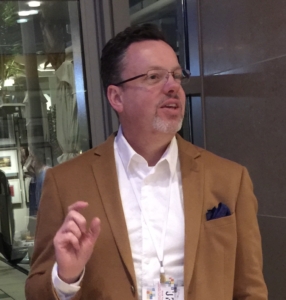 Erik Russell
Erik Russell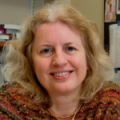 Susanne Hambrusch
Susanne Hambrusch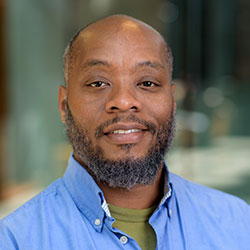 Russ Joseph
Russ Joseph
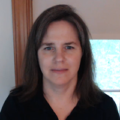 Kelly Shaw
Kelly Shaw